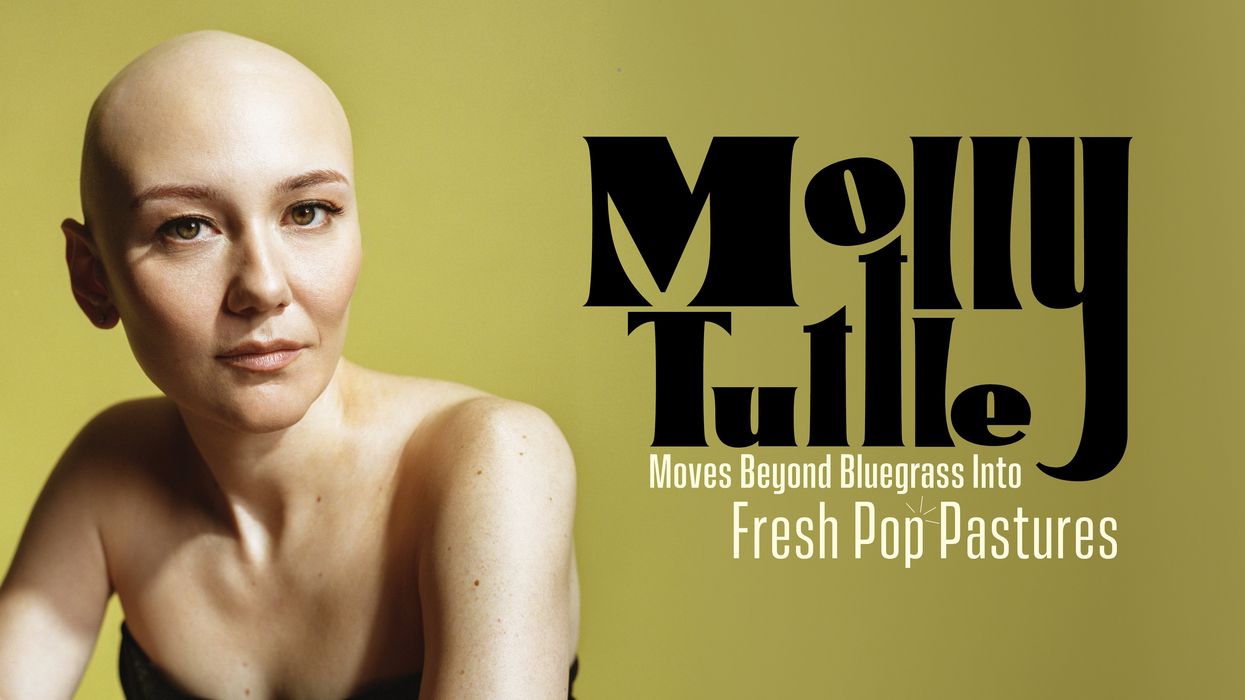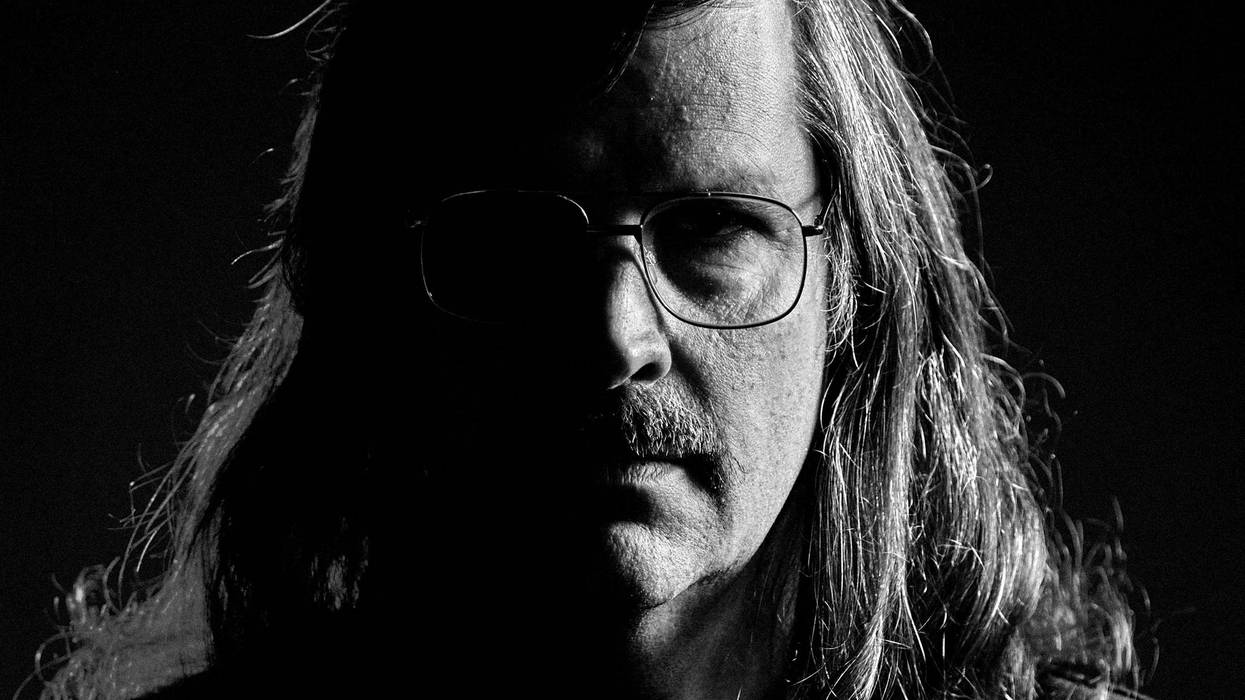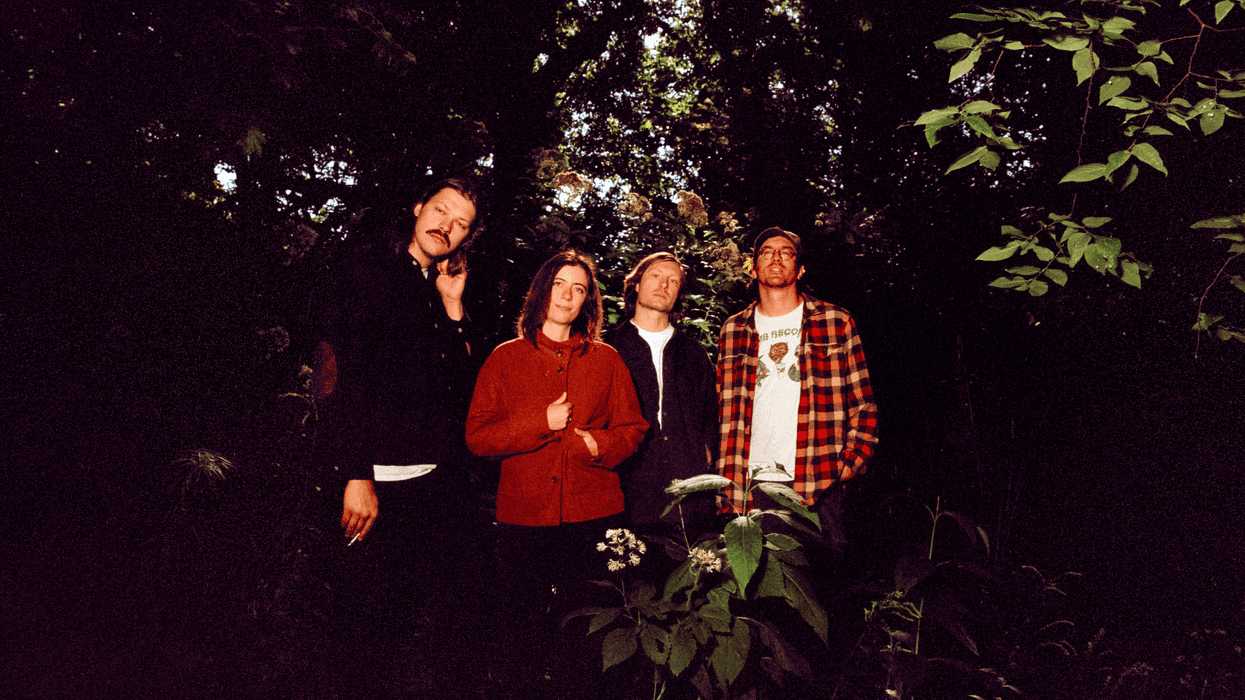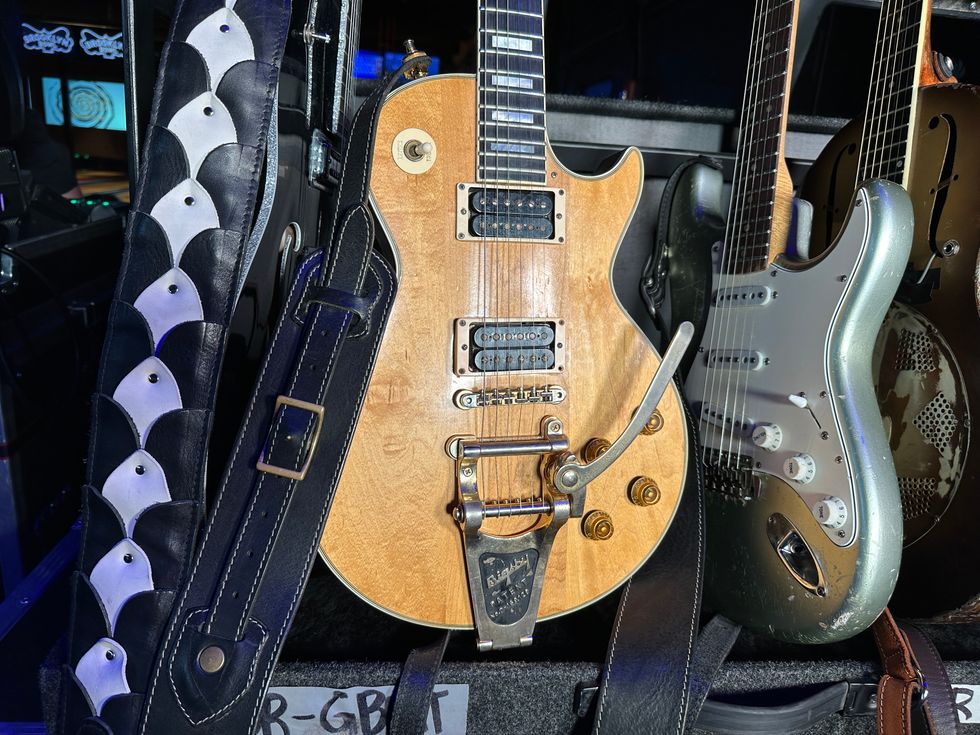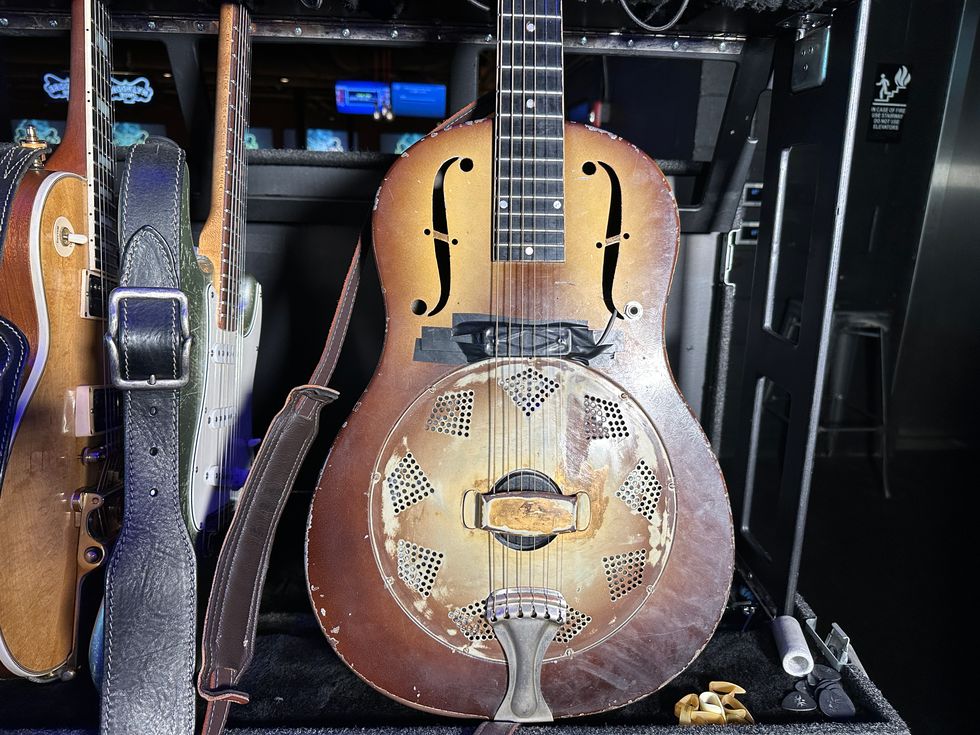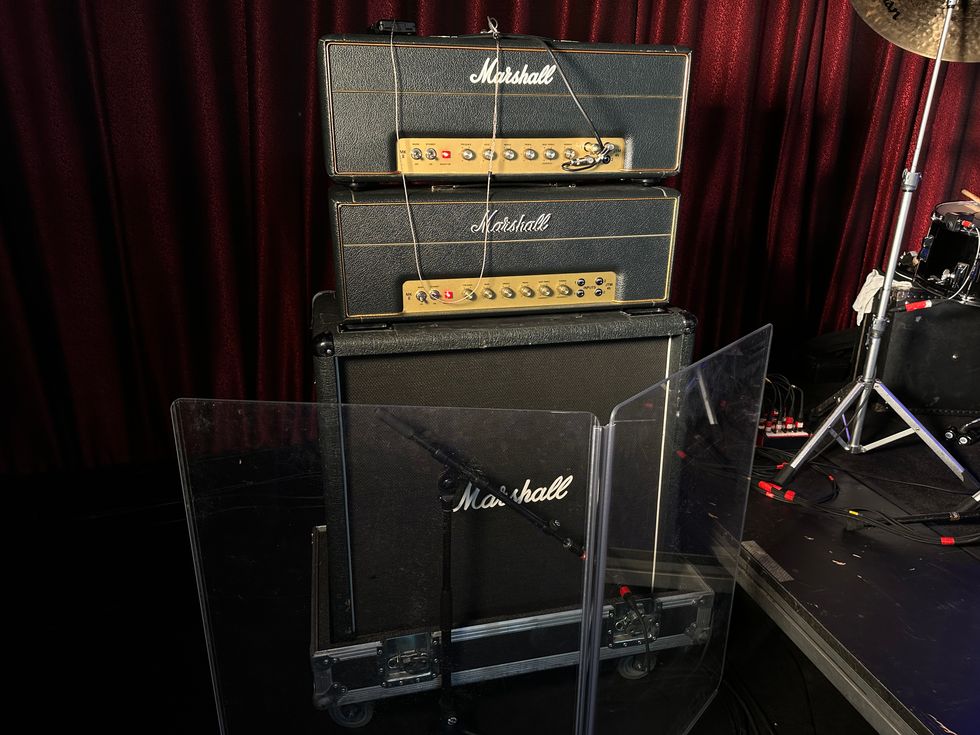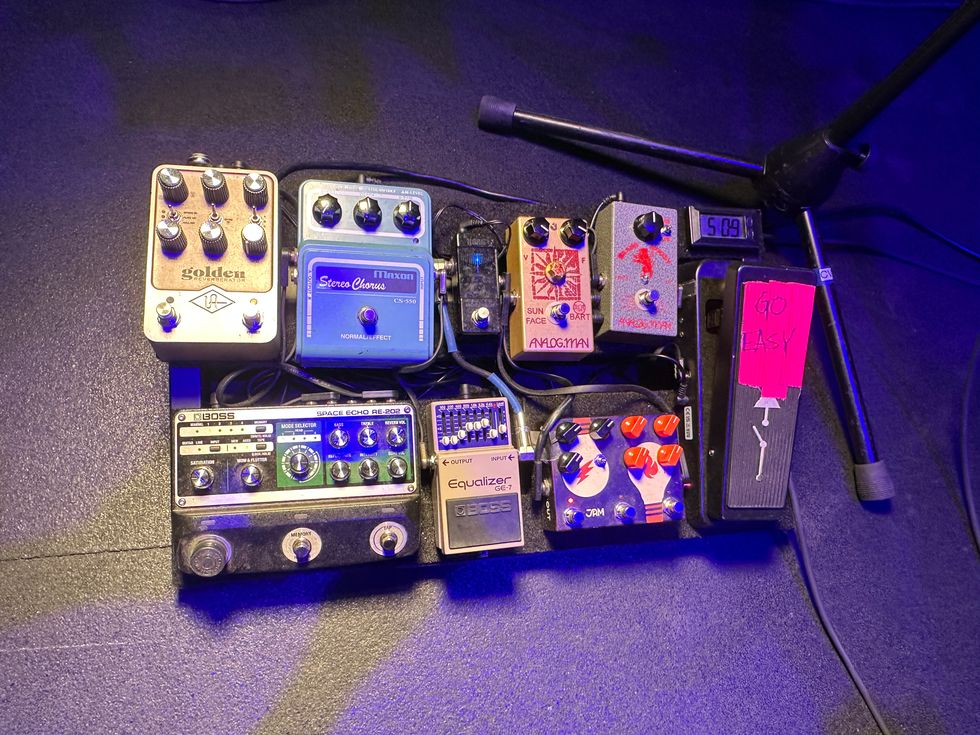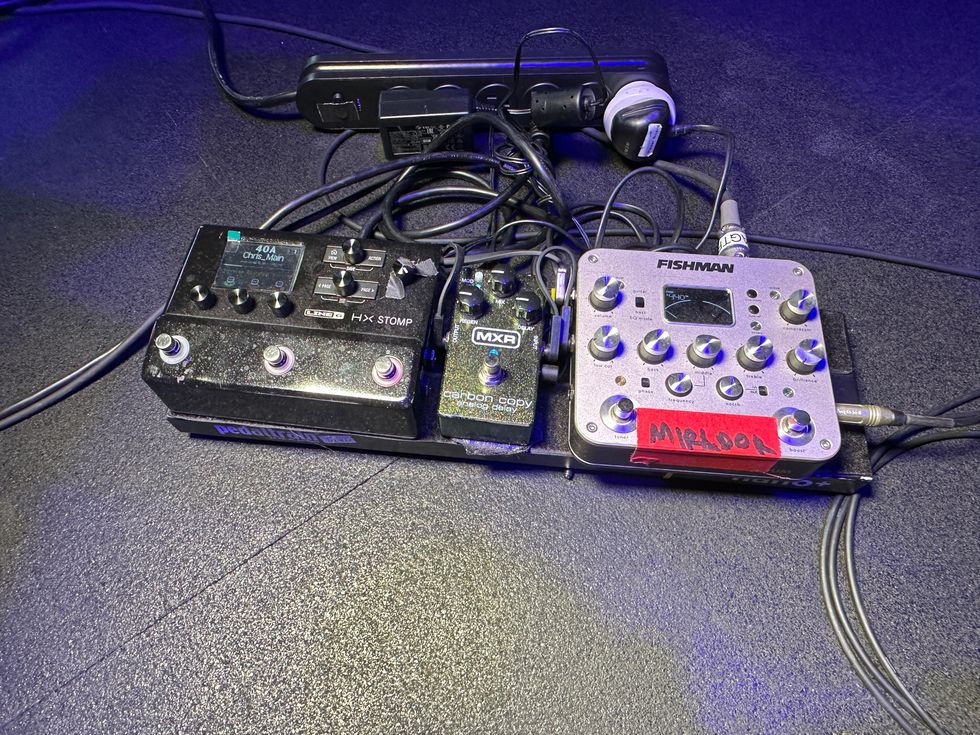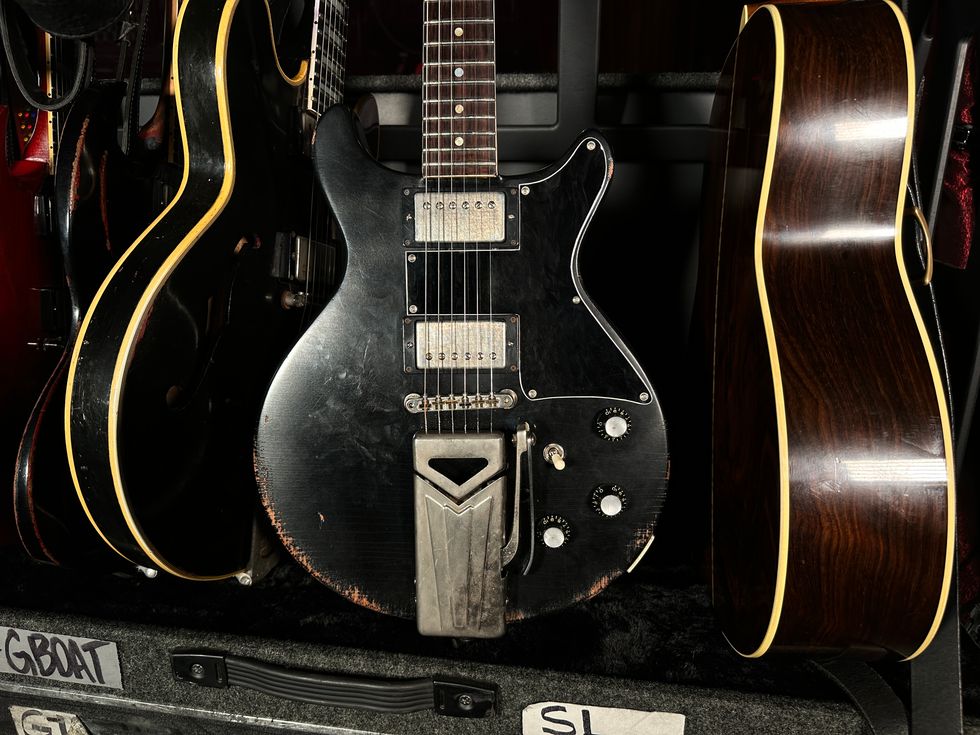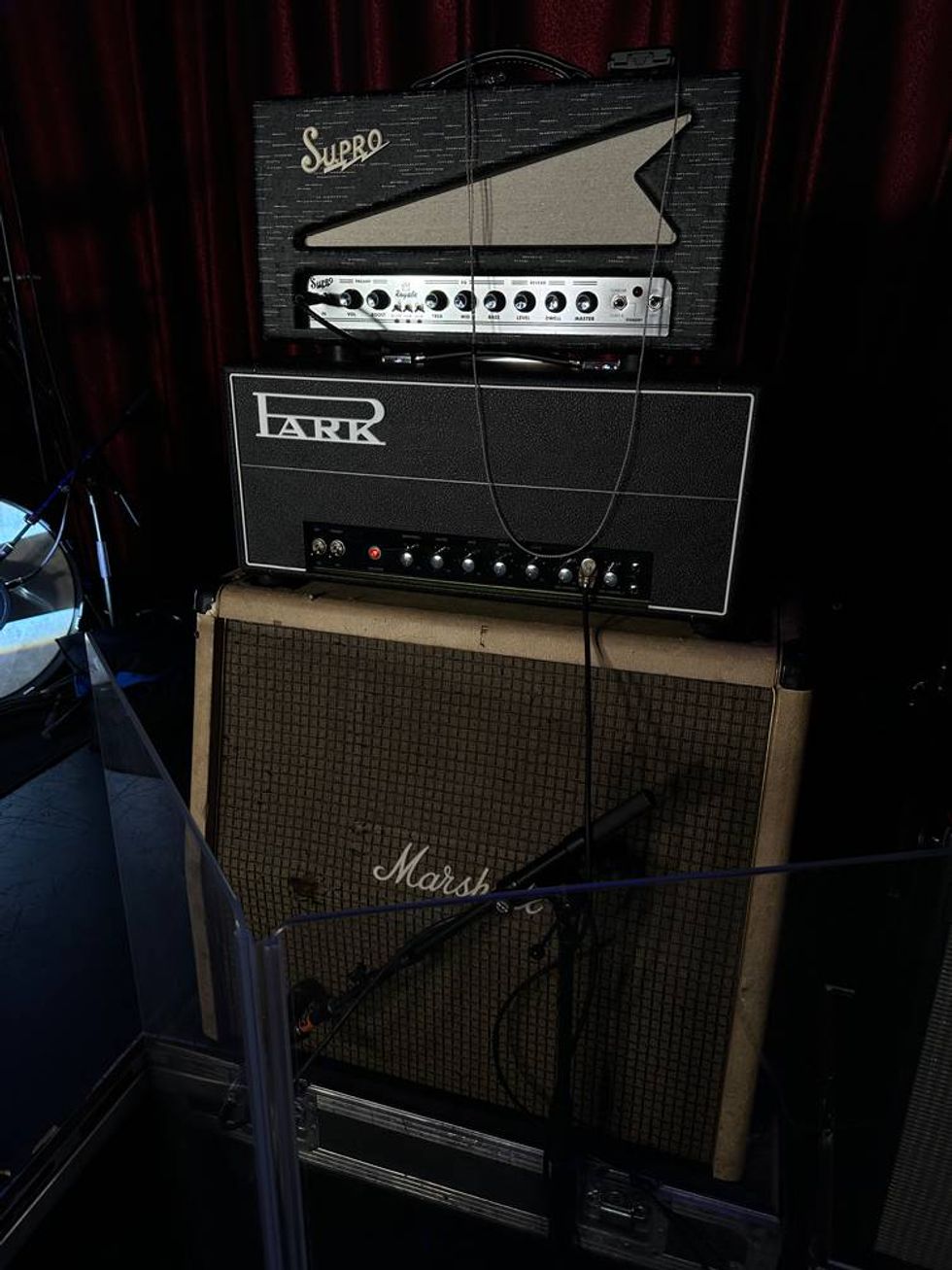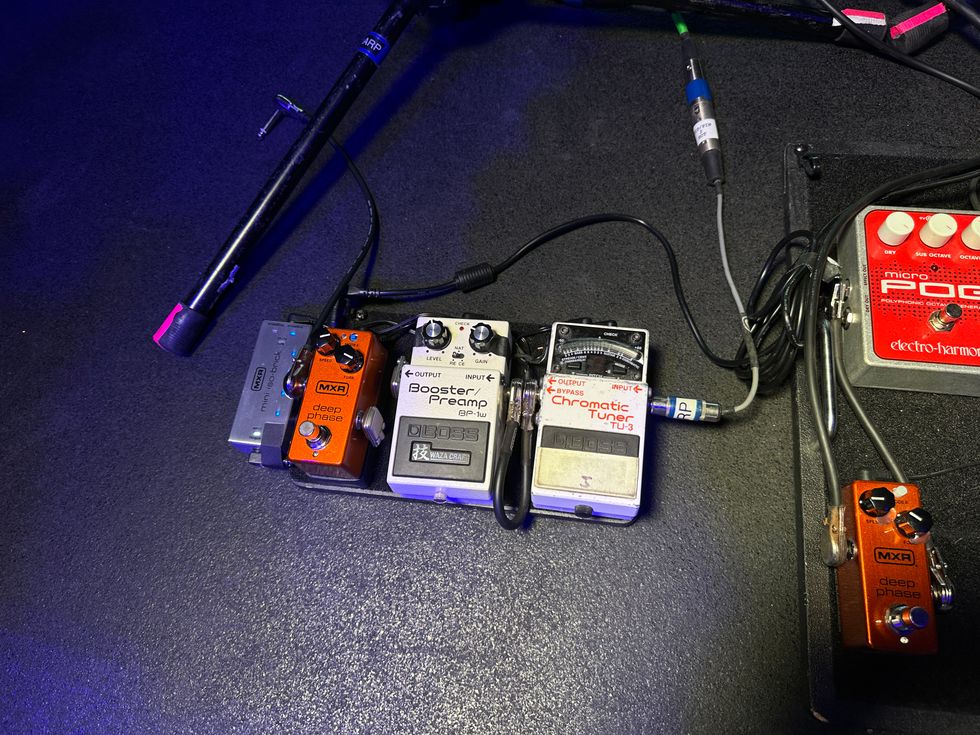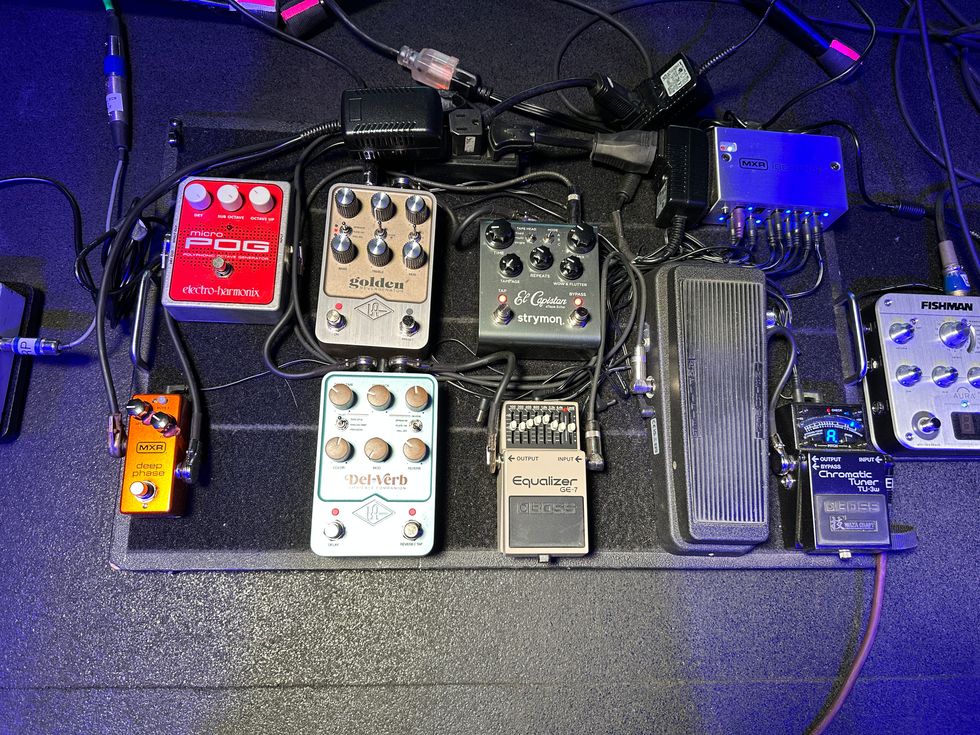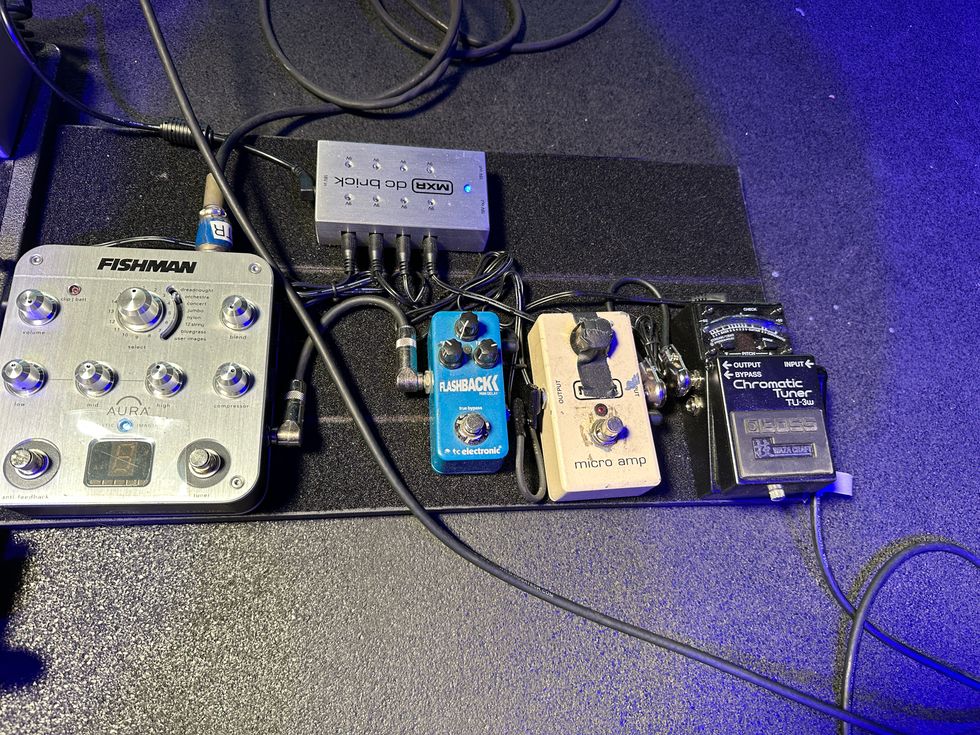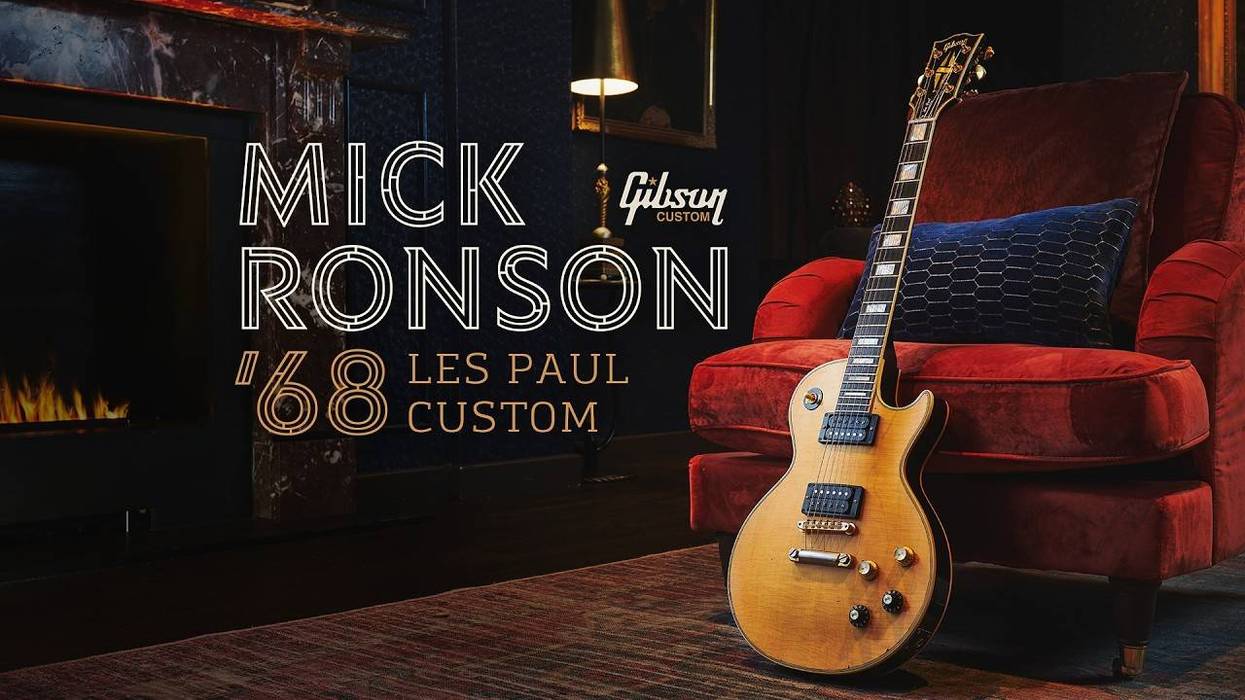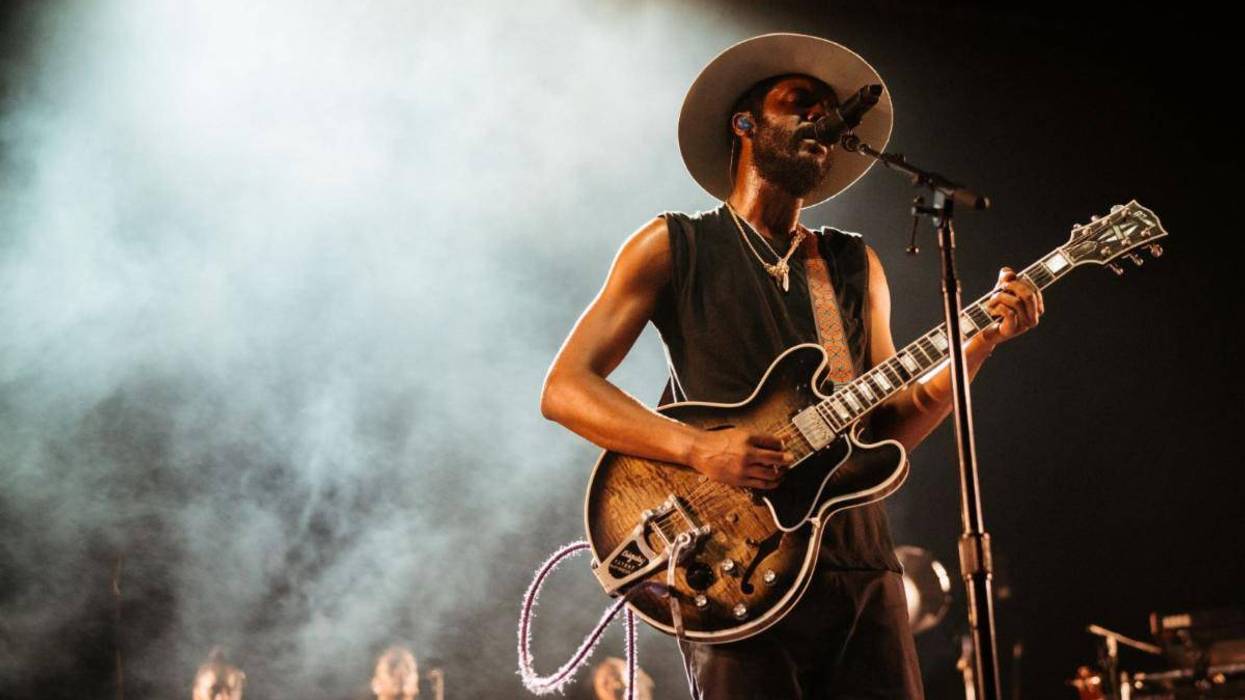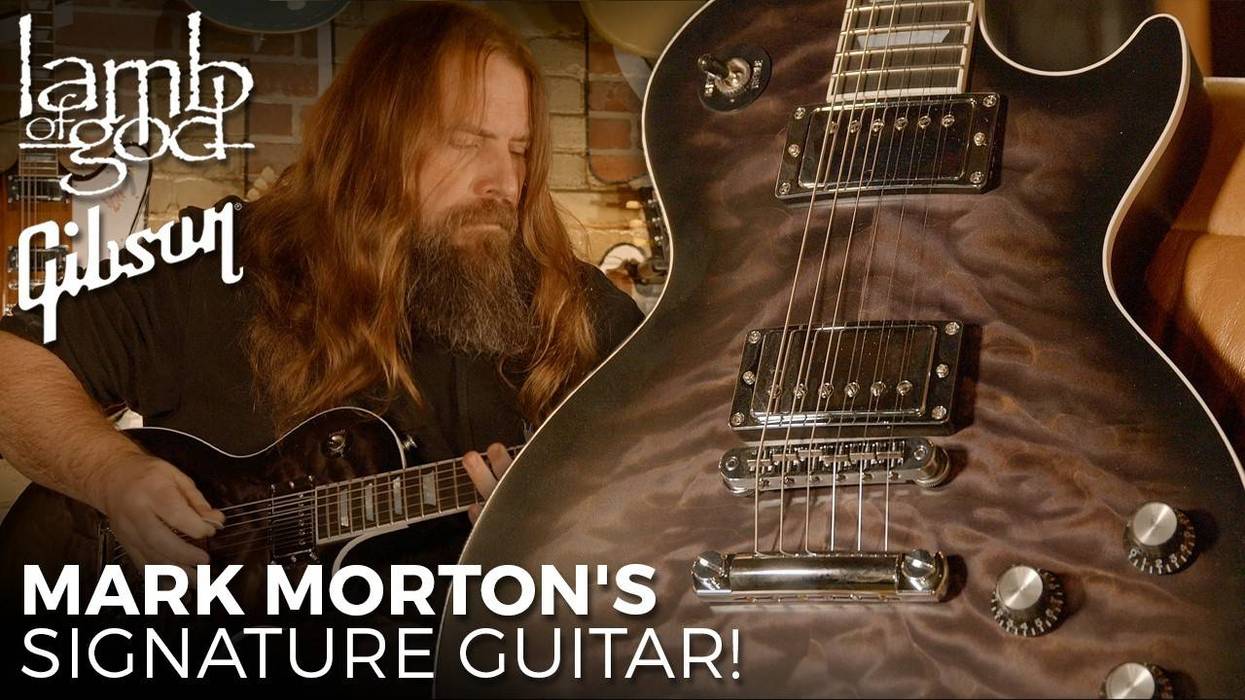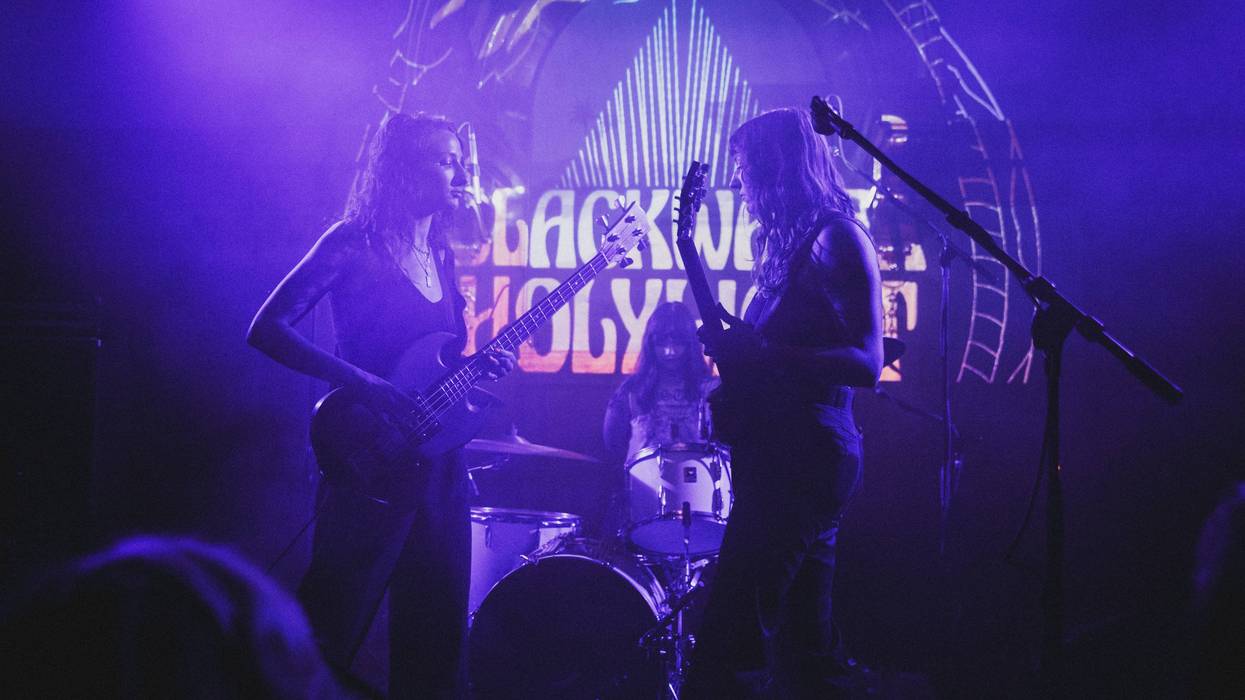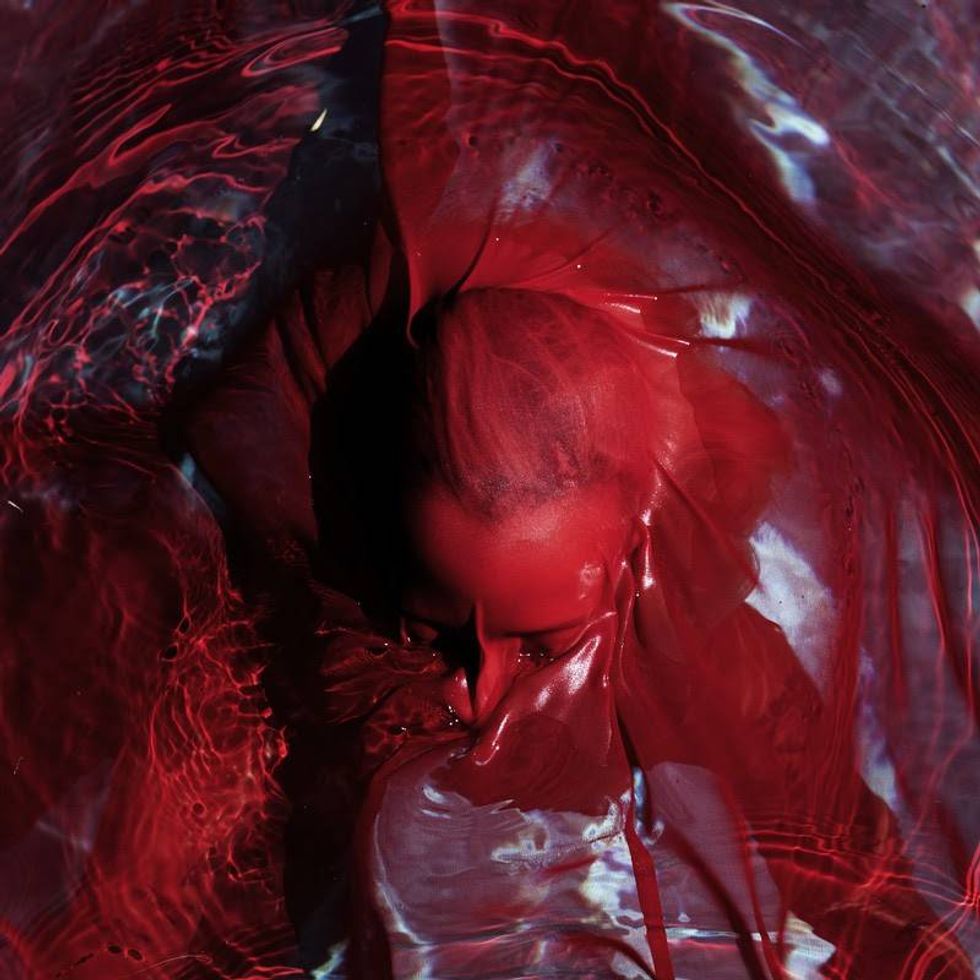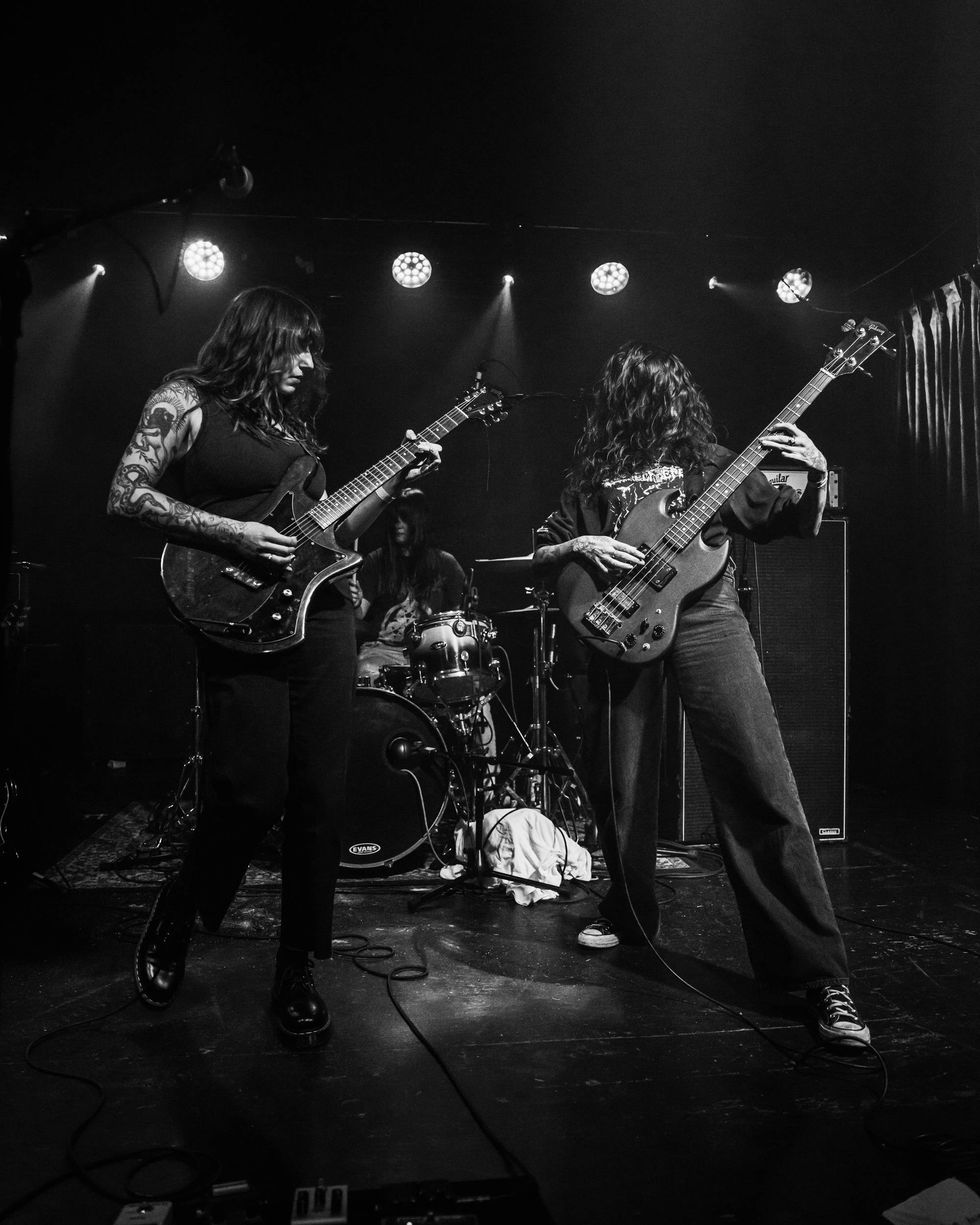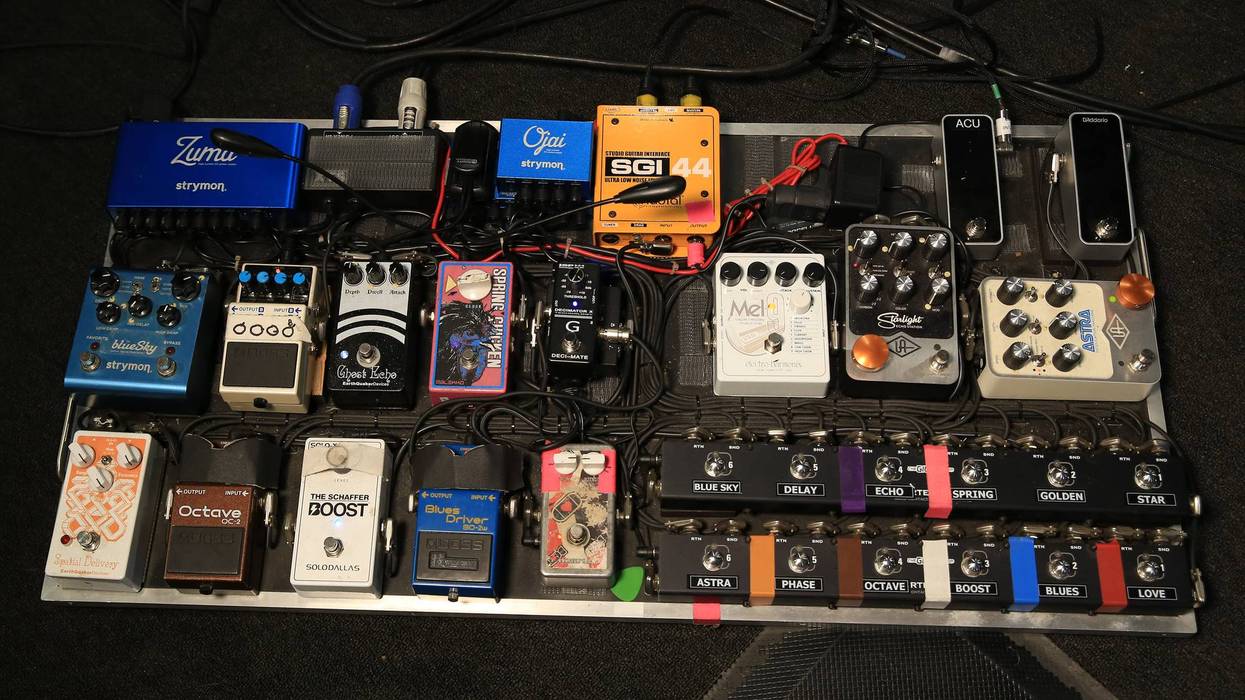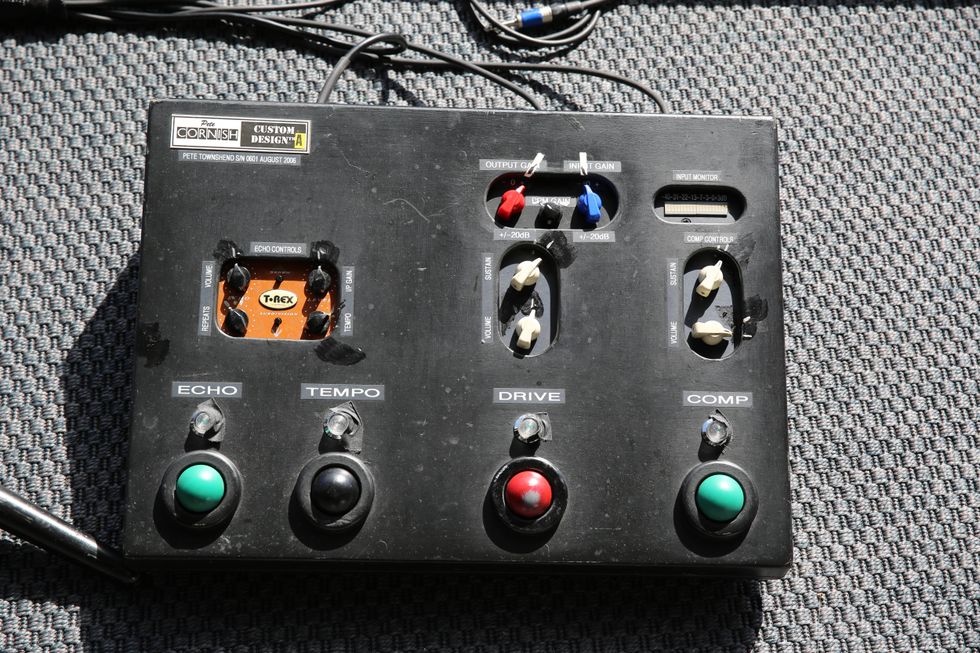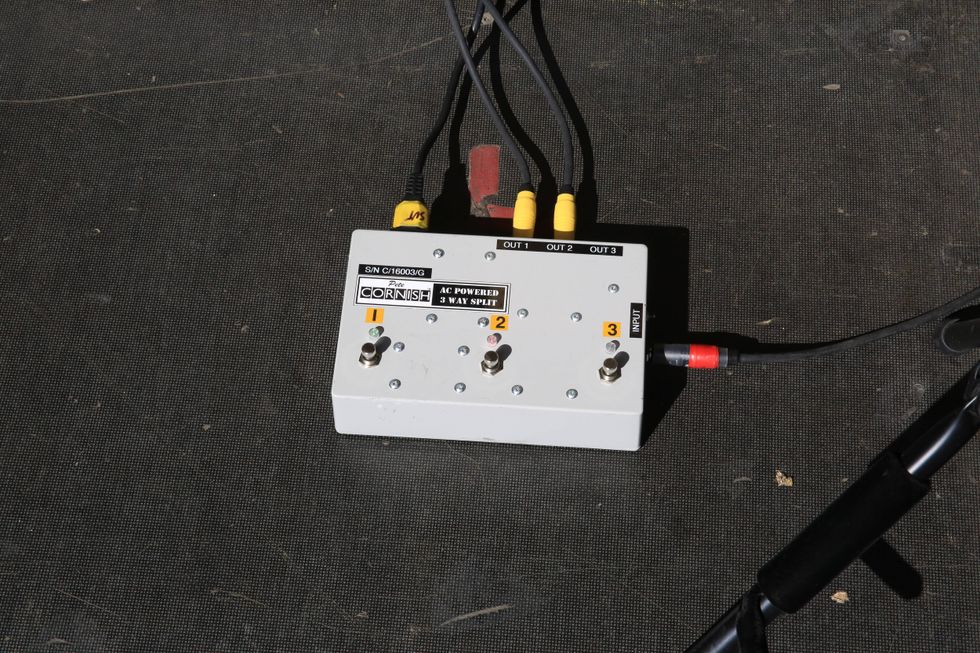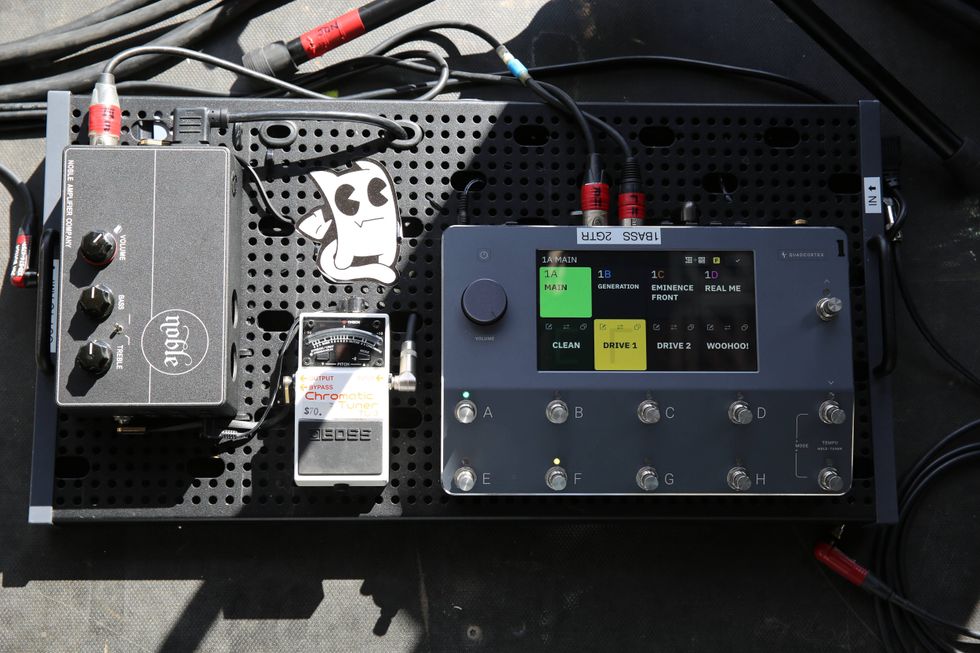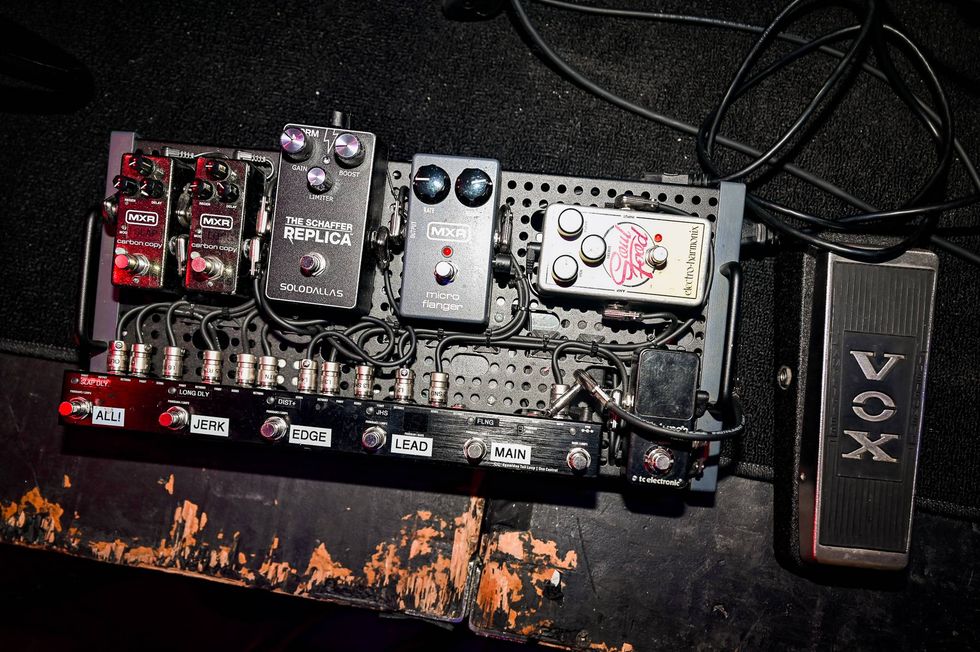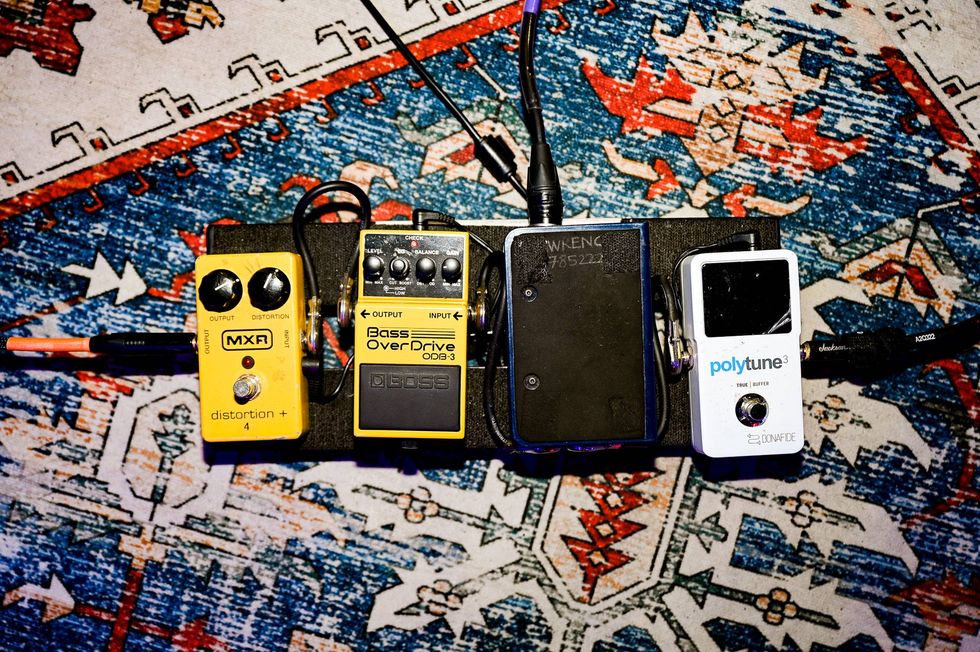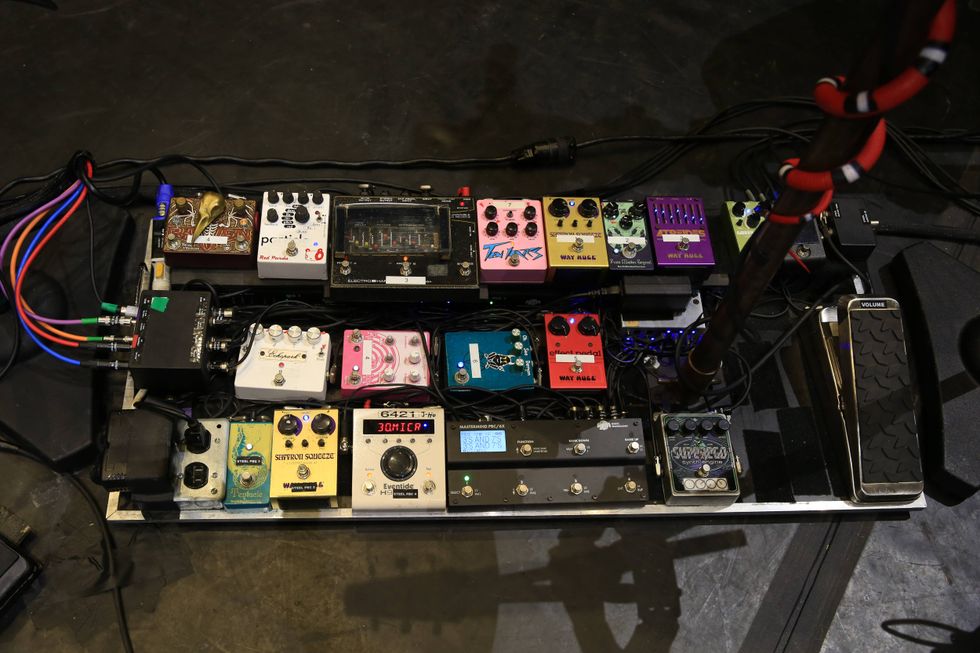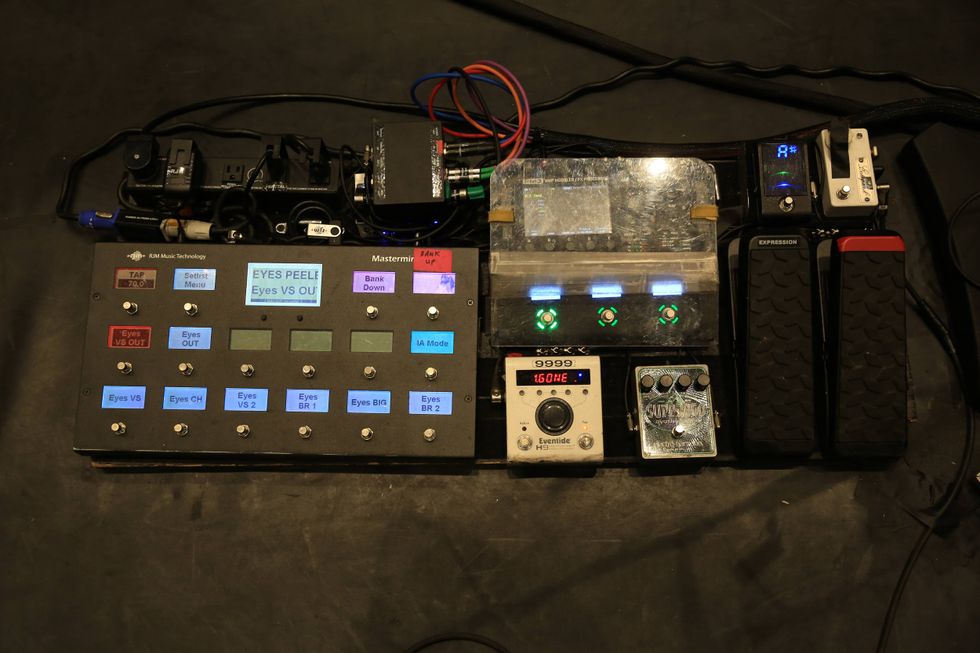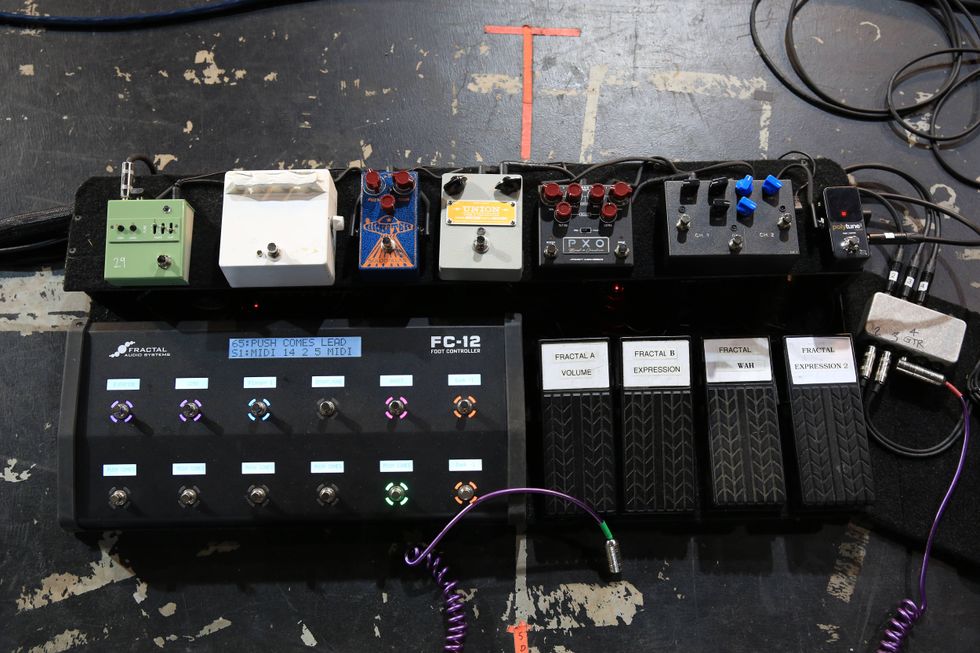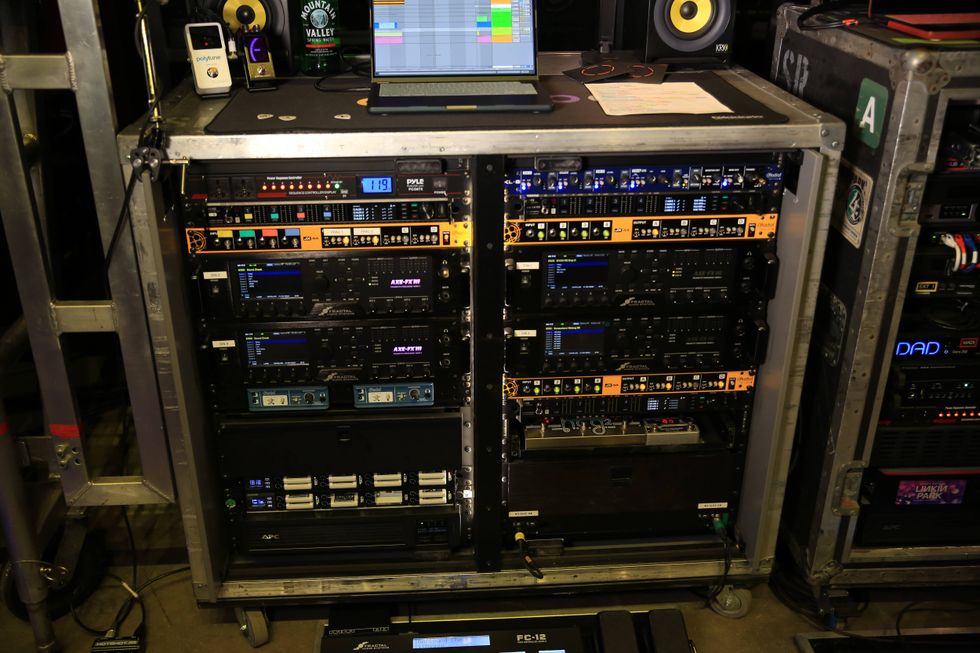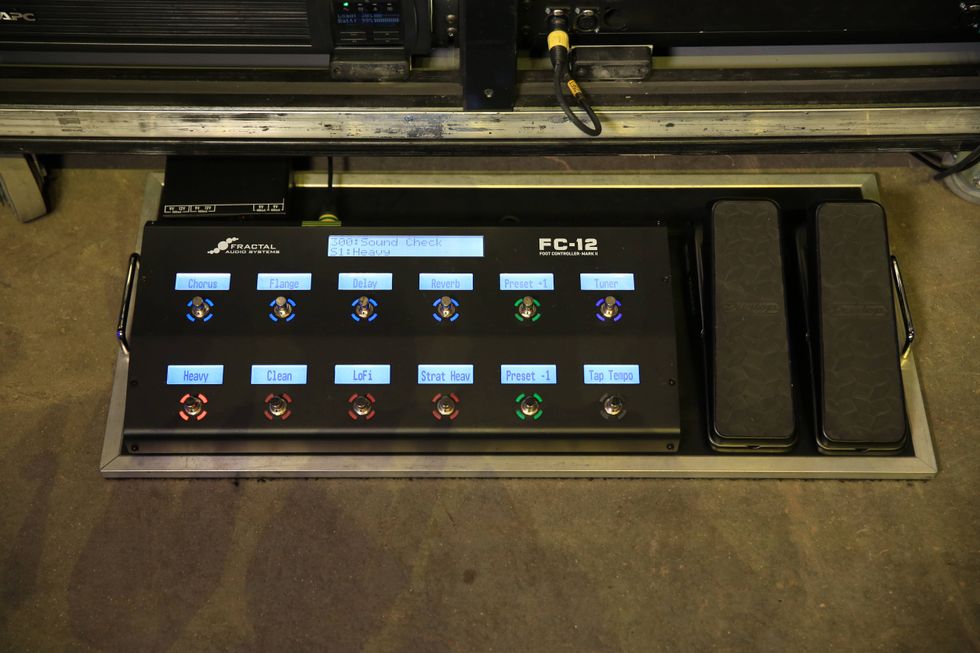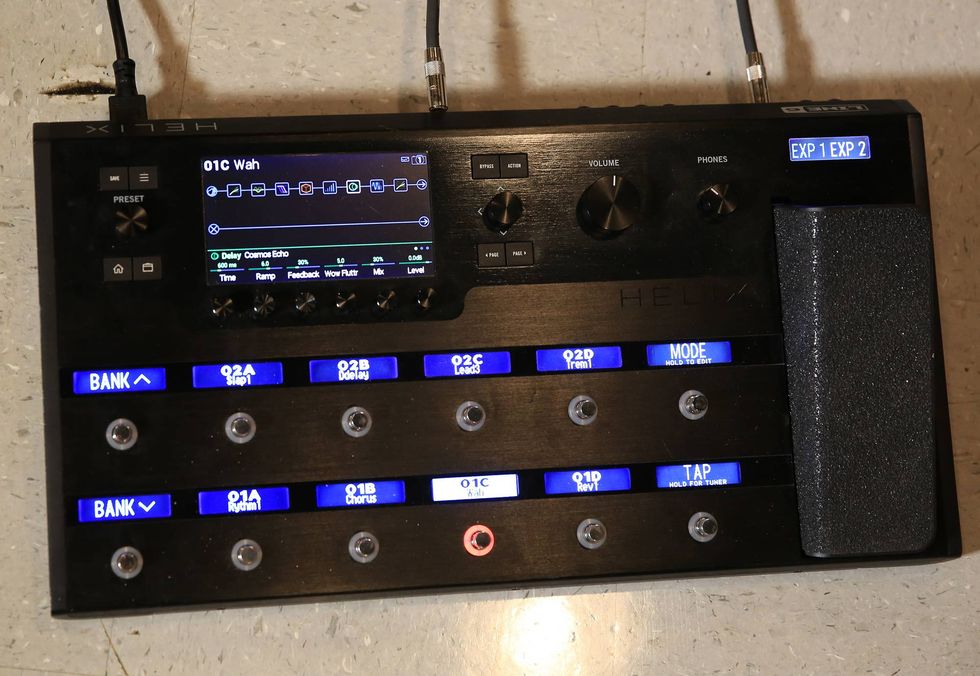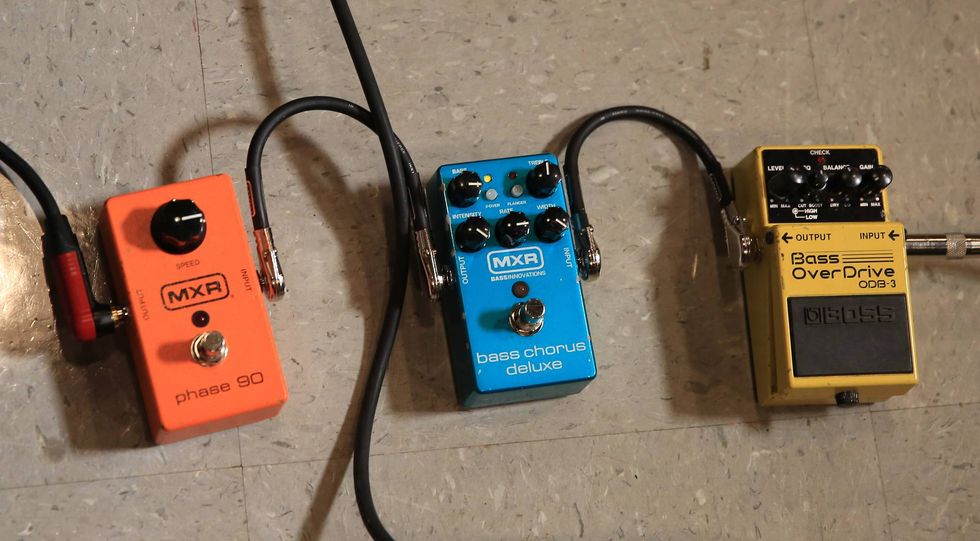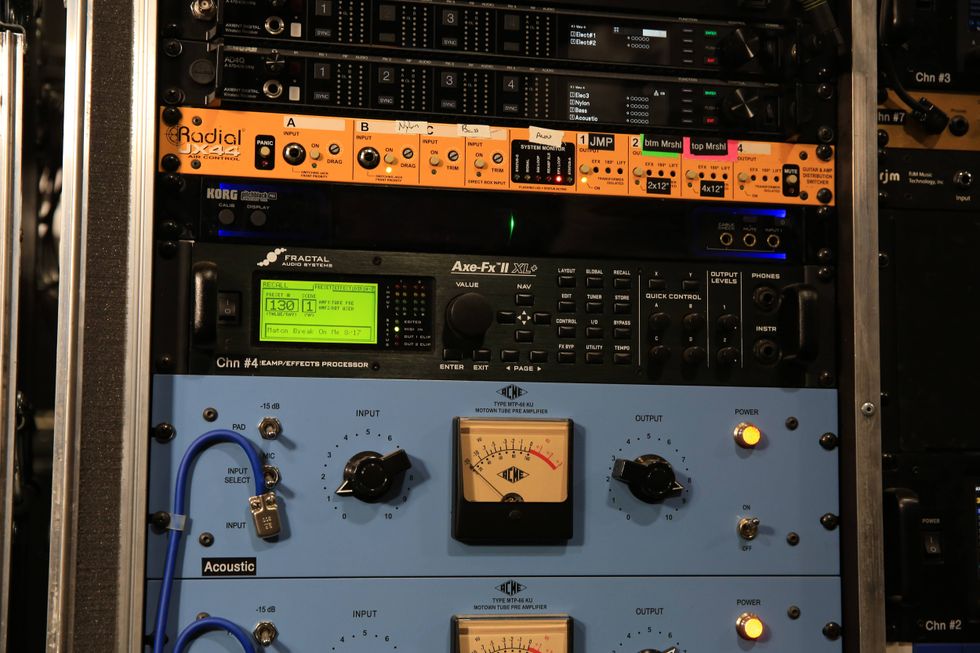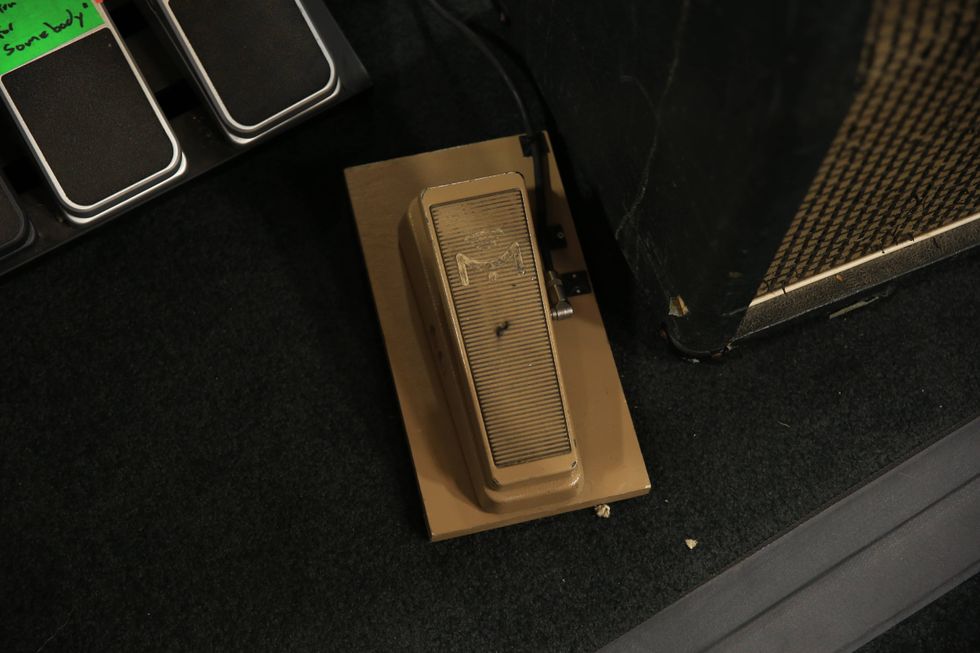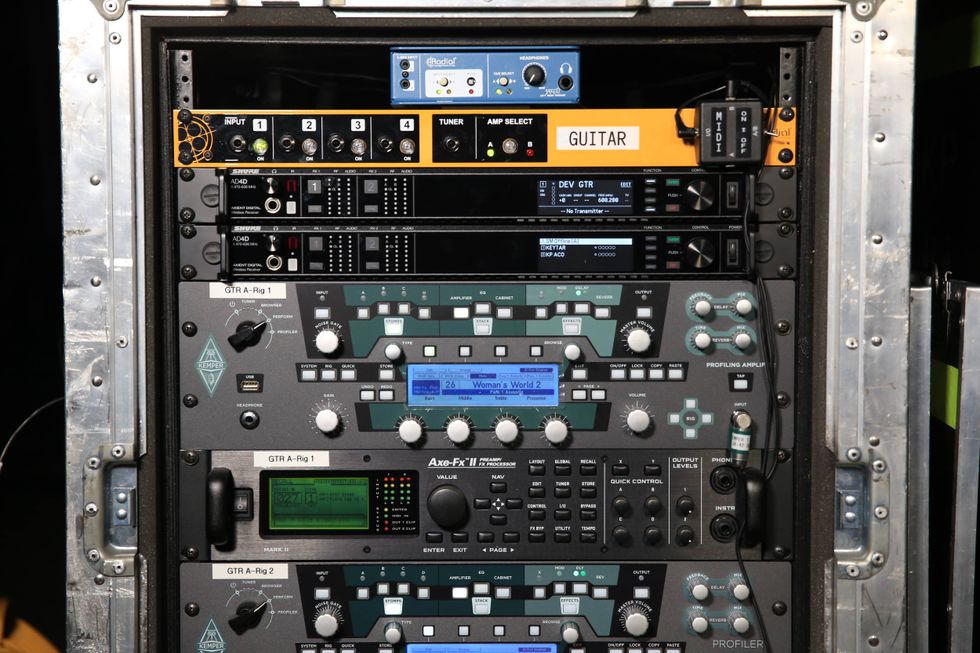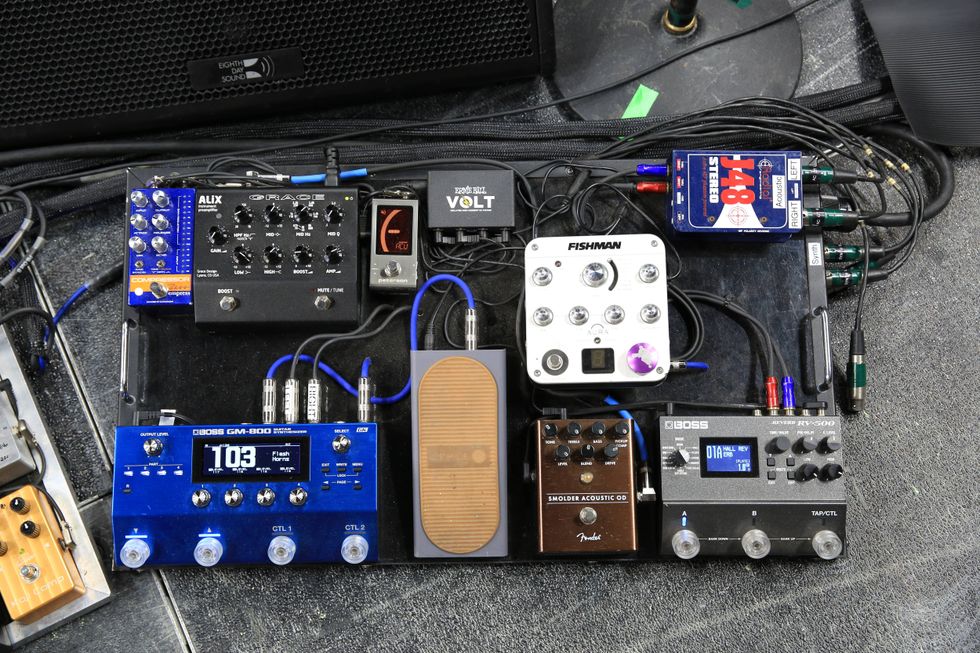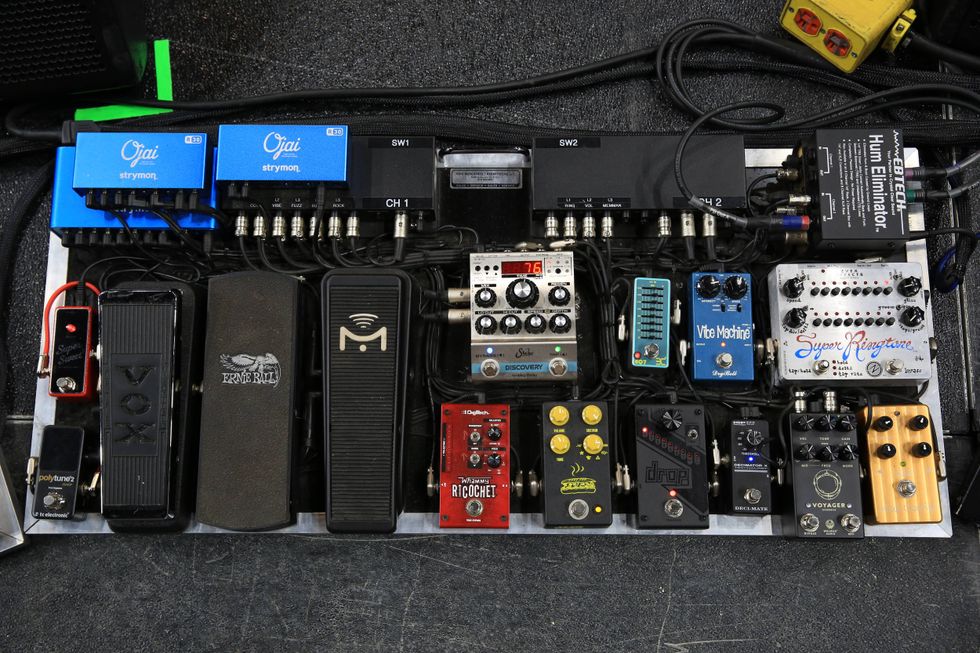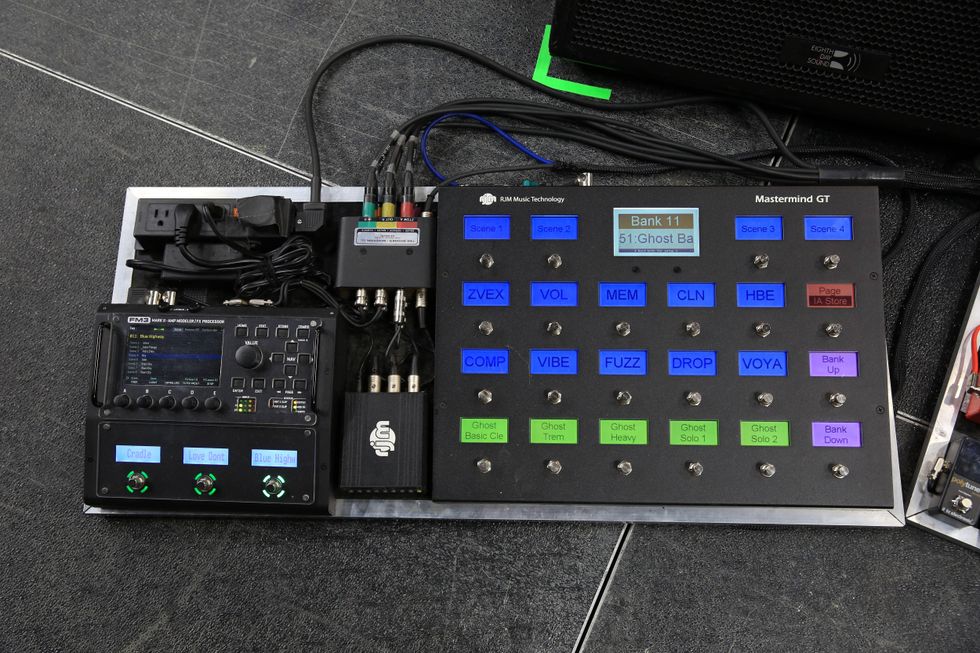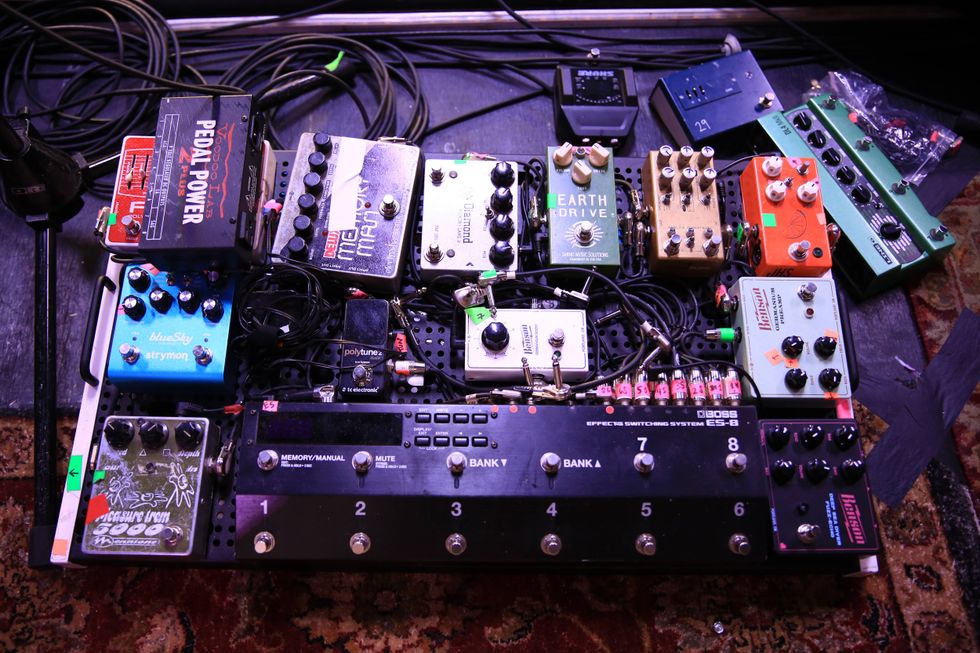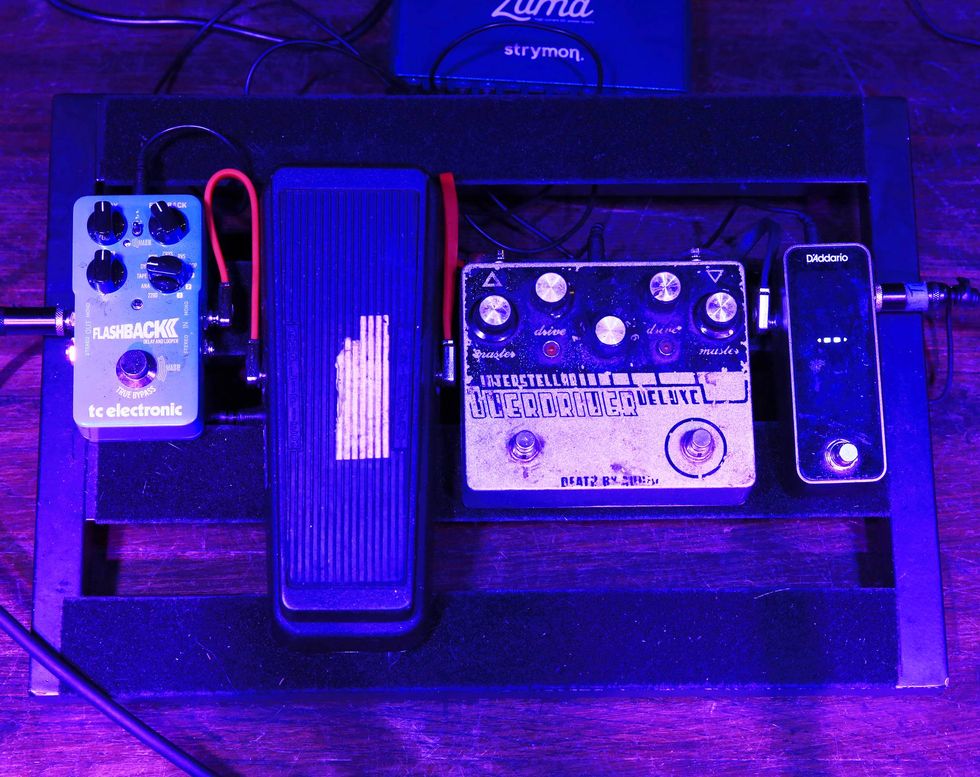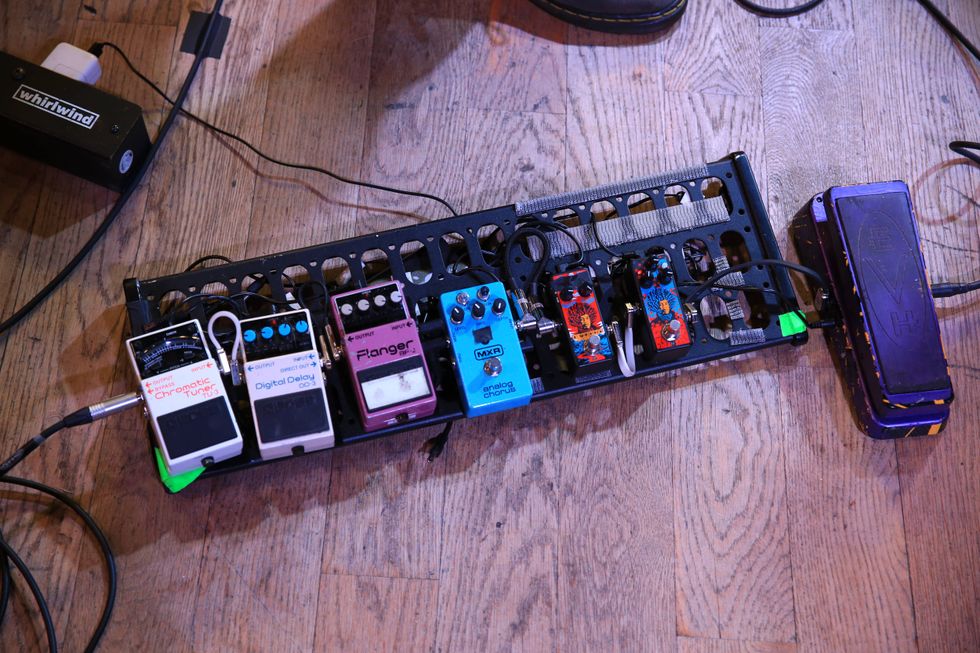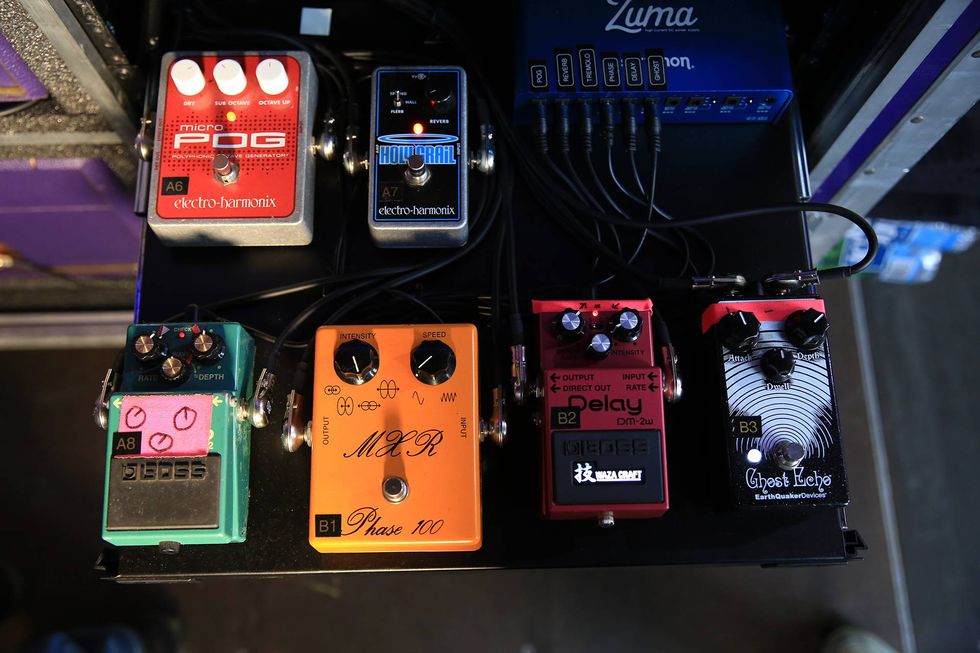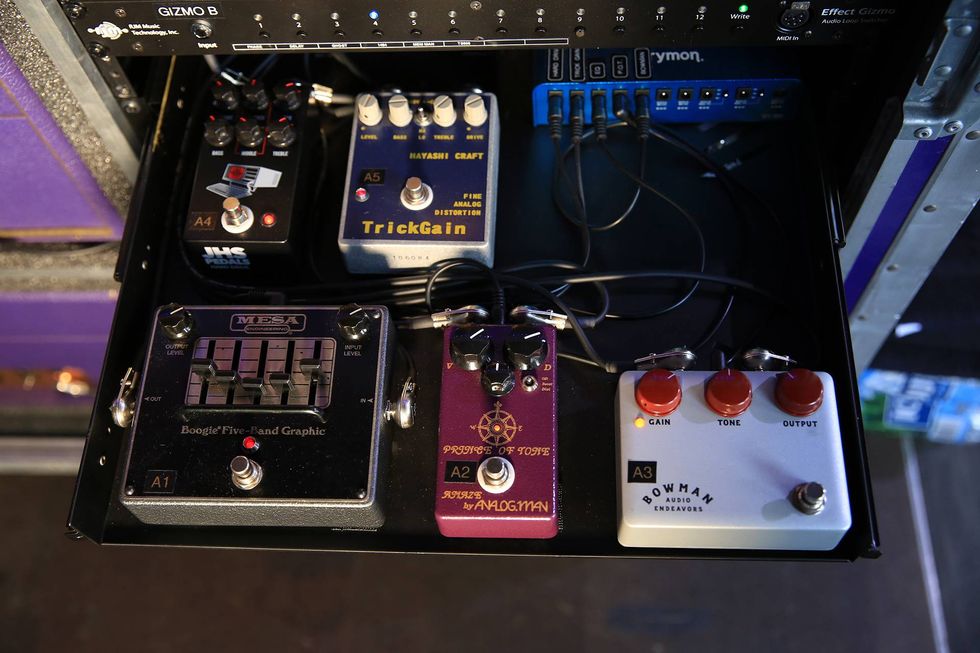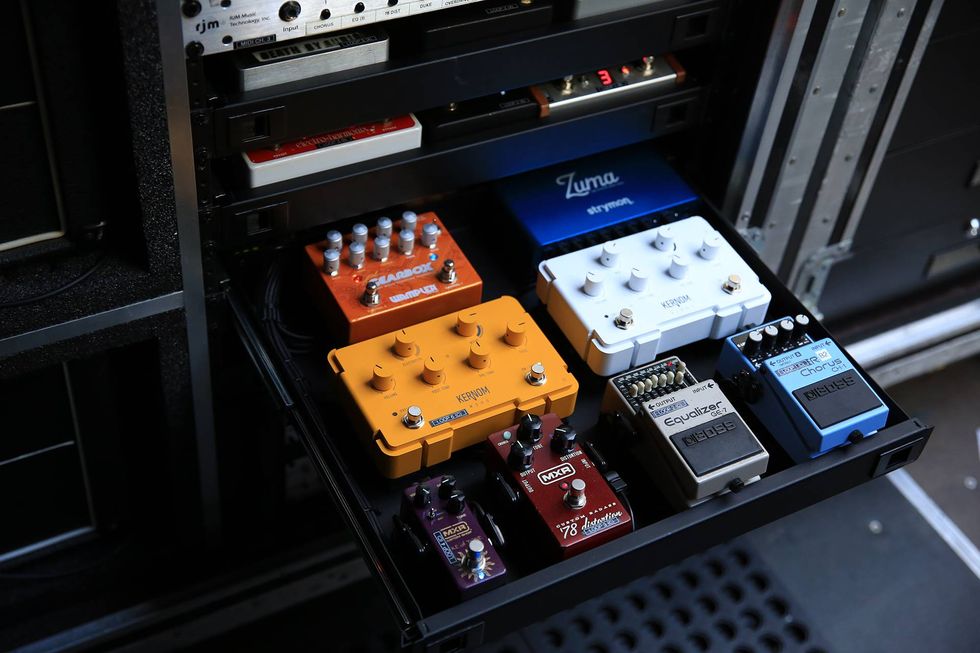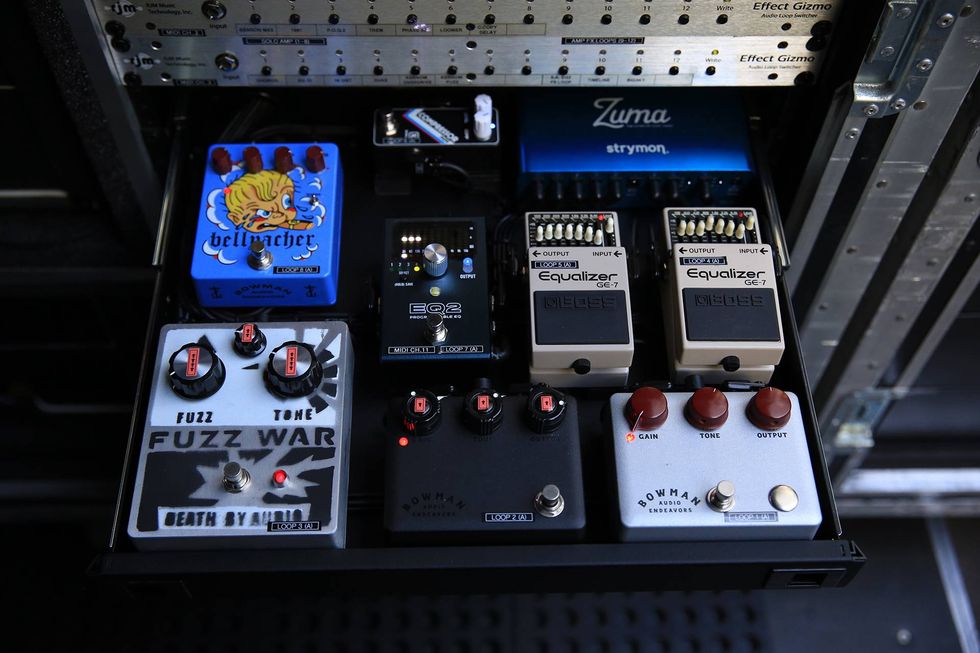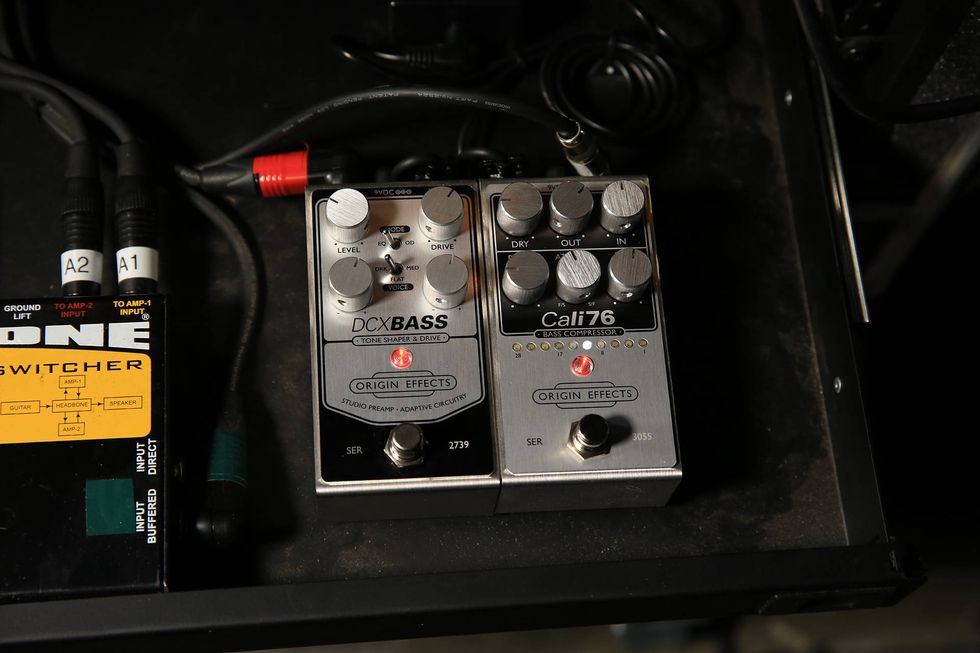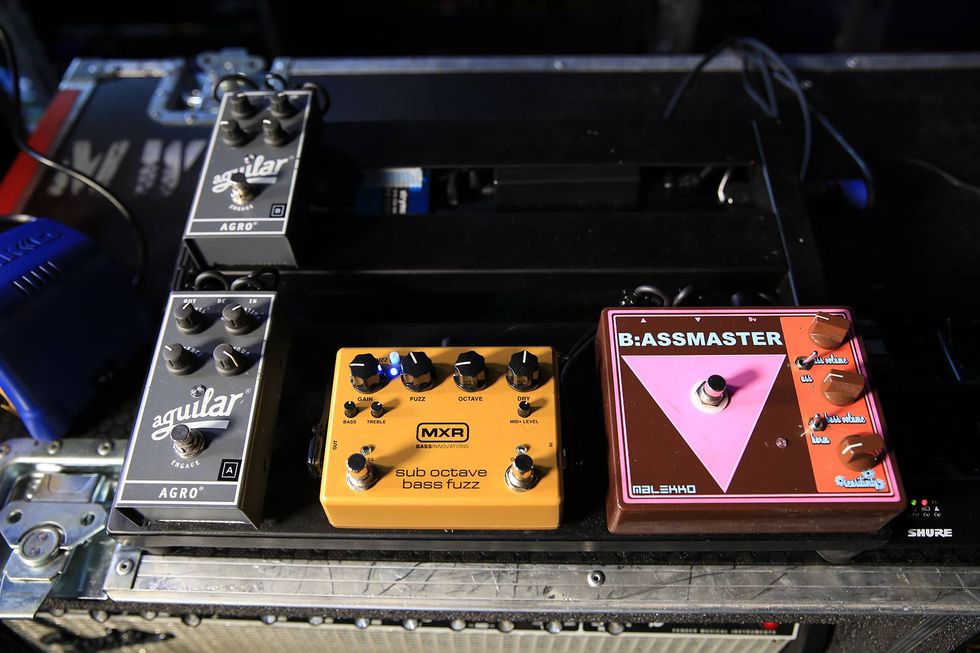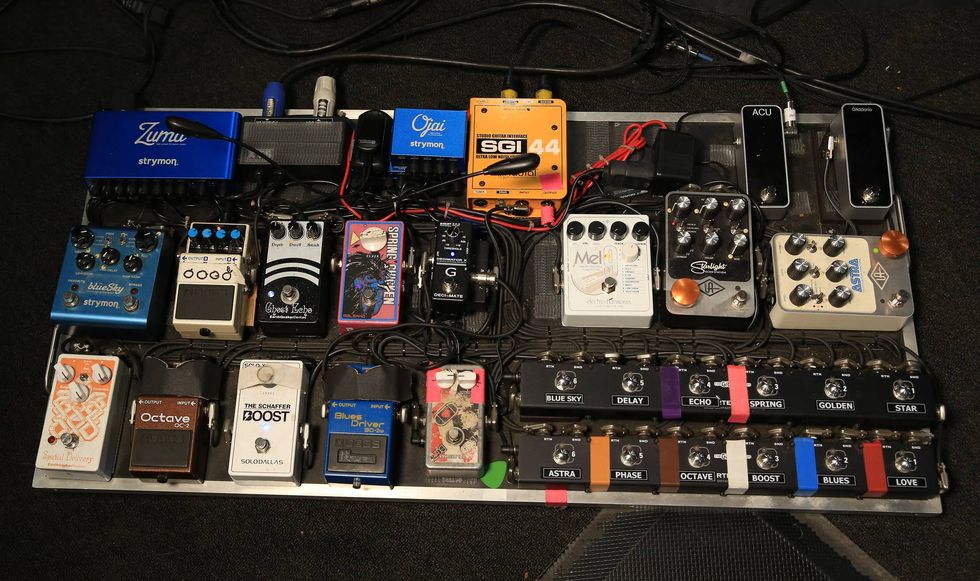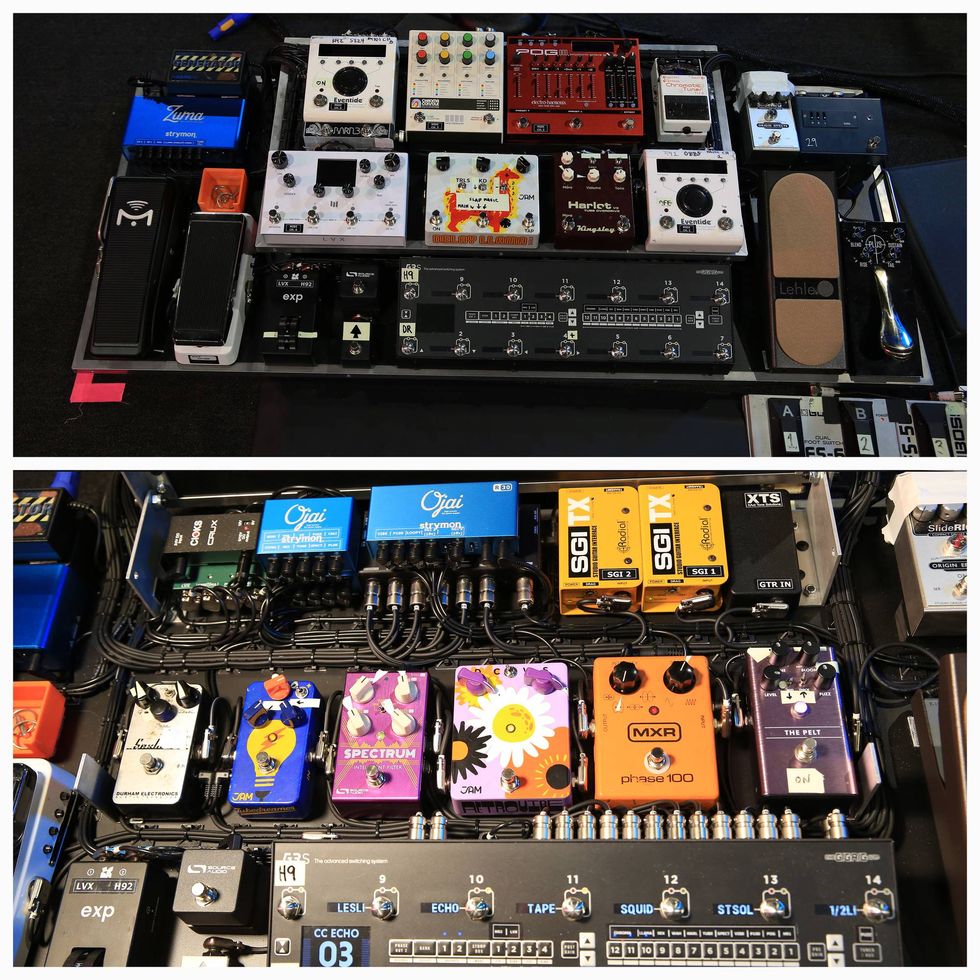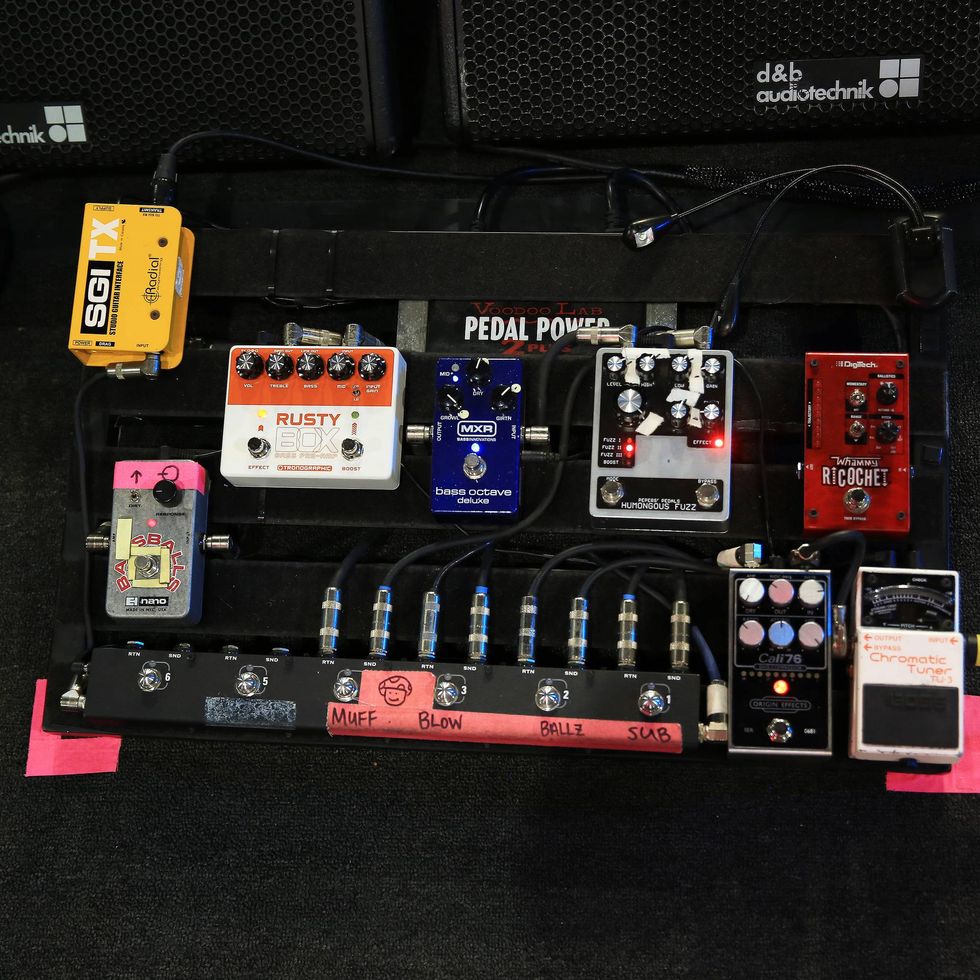Perched on Houston Street, the unofficial border between Manhattan’s East Village and Lower East Side, the Mercury Lounge is a venerable New York City music room with a top-notch sound system. It’s also quite small. Two hundred and fifty people max would be a generous capacity estimate, and the club’s bookings, fittingly, tend toward the alternative and the fringe. So it’s not the first place you’d expect to see a celebrated bluegrass acoustic guitar virtuosa and two-time Grammy winner. But on this extra-warm evening in late June, Molly Tuttle is specializing in the unexpected.
- YouTube
The four musicians weaving through the shoulder-to-shoulder crowd ahead of Tuttle to the Mercury stage are the night’s next surprise, for more than one reason. For starters, they’re not Golden Highway, the group with which she won those Grammys (for Best Bluegrass Album, in 2022 and 2024). Secondly, they’re all female. The appealingly afro’d Megan Jane is a stone-solid drummer. Vanessa McGowan switches off between electric and acoustic upright bass. Mair Mulroney deftly handles fiddle, mandolin and keyboards. Close-cropped Ellen Angelico lets it rip on electric guitar and lap steel. “This is only the fourth show we’ve played together,” Tuttle announces from the stage, clutching the signature dreadnought that Martin built for her last year. “And the first three were festival-type things, so this is the first show that really feels like ours.”
The music they play, much of it from Tuttle’s new album, So Long Little Miss Sunshine, is surprise number three. Bouncy, breezy songs like “The Highway Knows” and “That’s Gonna Leave a Mark” are, in short, not bluegrass, though they abound with nods to both modern and traditional country. You wouldn’t be wrong to call this pop music, yet it’s pop of an exceptionally tuneful, intelligent and tastefully arranged order. And unlike the work of pretty much any other contemporary pop artist, it leaves plenty of room for the acoustic guitar as a lead instrument. Because while the stylistic trappings and the supporting players have changed, one thing hasn’t: Tuttle is still cross-picking up a storm, exclusively on the kinds of axes that have big sound holes and wound G strings. At least for now.
“Maybe on the next album,” 32-year-old Tuttle says with a laugh earlier that same day, in a mercifully air-conditioned record company conference room, when asked about the chances of her ever going electric. Right now she’s still happy to explore her usual instrument in a new context. “You know, you think of bluegrass as featuring the flatpicked guitar more than any other style. But strangely enough, I play so much more guitar on this album than I ever have on one of my records. That was really fun for me, and it pushed me as a player. It was like, how do we keep this interesting when I’m gonna be the only soloist on the whole record?”

Tuttle plugs in at the Newport Folk Festival, 2019
Tim Bugbee/Tinnitus Photography
“This is my fifth record,” Tuttle says of So Long Little Miss Sunshine, “which is crazy. It doesn’t feel like it is. But looking at all five of them together, this one is definitely more in the vein of my first record [2019’s When You’re Ready] and the cover record. And then for the last two”—the Grammy winners, Crooked Tree (2022) and City of Gold (2023)—“I consciously wanted to make these bluegrass records to honor my family roots in that music. My grandfather played the banjo and passed down the music to my dad, who taught me how to play, and it just felt like this important thing for me to do. I know that I’ll always want to play that music, and I’m sure I’ll make more bluegrass records and tour with bluegrass bands again. But at the same time, this album feels like it’s a bigger picture of who I am as an artist. It encapsulates more sides of my songwriting and playing and singing.”
“Strangely enough, I play so much more guitar on this album than I ever have on one of my records.”
So where does this leave Golden Highway? “It’s on hiatus,” Tuttle responds, “and I don’t know when we’ll play together again. But I certainly hope that we do. I think we were all ready to slow it down a bit. We’ve had so much fun over the past three years, but everyone knew that I was gonna want to do something different. Some of the band members expressed that they wanted to pursue their solo projects, and we’ve been touring at such a high intensity, it just felt like a natural stopping point. I don’t think anyone wanted to say this is the end, and I certainly don’t. We’re all still great friends, I see them around in Nashville, and I think when the time’s right, we’ll have an epic musical reunion.”
Molly Tuttle’s Gear
Road Guitars
Pre-War Guitars Co. Dreadnought (tuned EADGBD)
Martin Molly Tuttle signature model (D-28 style, tuned DADGAD)
Studio and Home Guitars
1943 Martin D-18
Pre-War Herringbone and Double Aught
Preston Thompson D-BA
Preston Thompson Molly Tuttle Signature
Pickups
K&K Double Helix, blended with internally mounted Shure microphone
K&K Pure Mini
L.R. Baggs HiFi Duet
Grace Design FELiX preamp
Strings, Picks & Capos
D’Addario EJ12 80/20 Bronze strings, medium gauge (.013-.056)
Dunlop Jazztone 208 picks
Shubb and Elliott capos
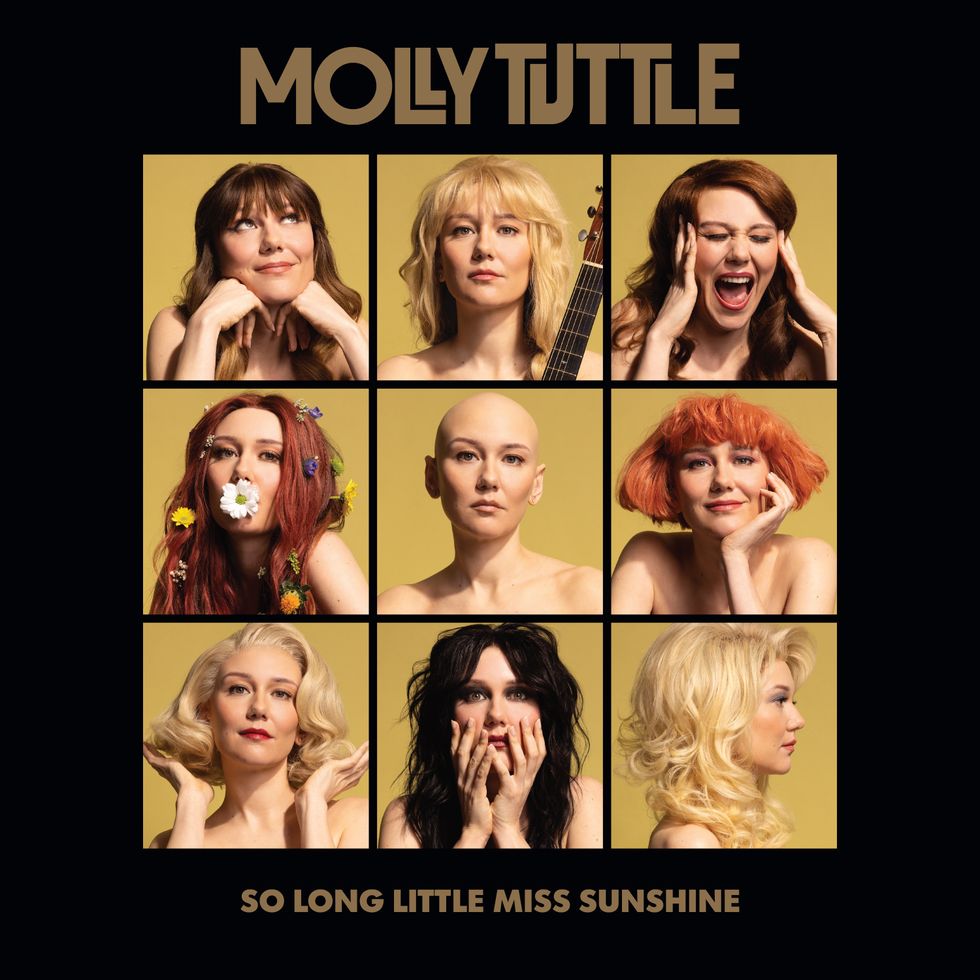
“It encapsulates more sides of my songwriting and playing and singing,” Tuttle says of So Long Little Miss Sunshine.
As for the new band, Tuttle claims that the lack of Y chromosomes in its lineup wasn’t pre-planned. “I reached out first to Vanessa, who’s playing bass, and then she connected me with the rest of the band. I’d already toured with Megan, the drummer, in 2021, and we did some pandemic livestreams together. But we didn’t mean to make it all-female. Being a woman in the music industry, you never want to feel like you’re being asked for a gig just because you’re a woman. But when you get together organically, as we did, it’s like, yay, this is pretty fun.” That sense of high spirits is evident at the Mercury Lounge, as Tuttle’s bandmates prove equally adept at both the poppier new material and Golden Highway nuggets like “Alice in the Bluegrass” and “Over the Line.”
“I’m sure I’ll make more bluegrass records and tour with bluegrass bands again.”
Tuttle may not have played any of the electric guitar parts on So Long Little Miss Sunshine (those were handled by Joyce), but in the absence of Golden Highway in the studio, she did make another notable recorded debut: playing her grandfather’s banjo. “I always had a banjo player before,” she explains, “but all of a sudden I had to be my own banjo player. And that was a conscious decision—we still wanted to have banjo [on the album]. That way you see how it connects to my previous work; even as we’re moving into new areas, we tie it back to the roots.”
Beyond serving as a timbral bridge from one Tuttle era to another, the banjo also combines with her acoustic to create alluring textures on the album’s final two songs, “No Regrets” and “Story of My So-Called Life.”
In the latter composition, an exercise in elliptical autobiography, Tuttle gives a shout-out to the Orange Line, a branch of the Boston subway system that she rode almost every day she lived there. Even though she’s been a Nashville resident for years, the time she spent in Massachusetts’ capital as a student was clearly pivotal. “I learned so much at Berklee,” Tuttle recalls. “I knew no music theory before I went there. I’d never read any music or tablature. I had such an aversion to all that. So when I got there, it was a big shock. But after about a year I really understood music more, and I could communicate better with other musicians. A lot of times, I was the only acoustic player in my guitar classes, which was kind of funny. But I learned to embrace that, even if it sometimes made me uncomfortable.”
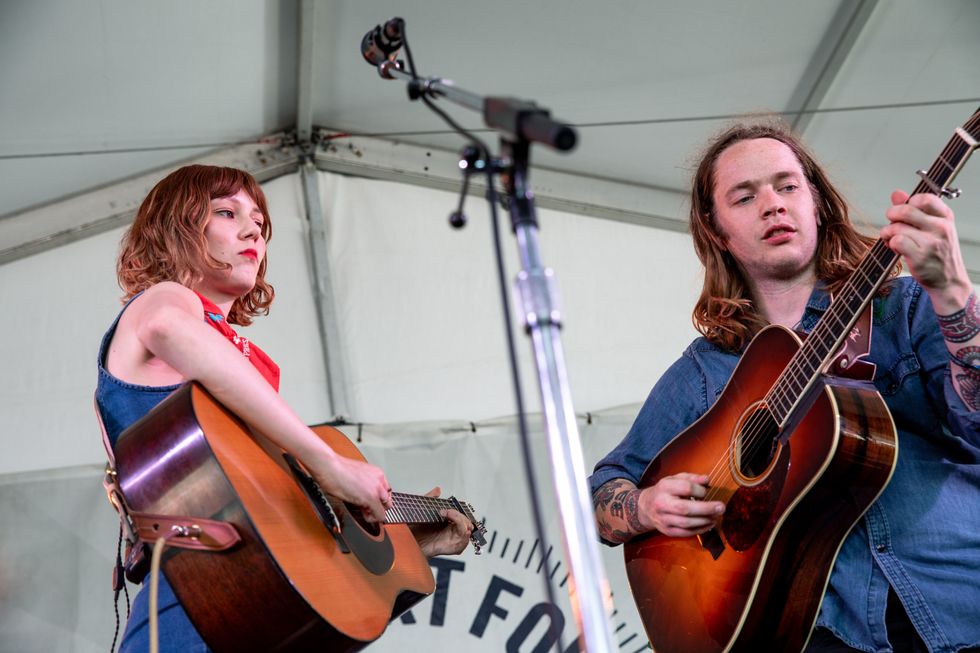
Tuttle and Billy Strings light up Newport, 2019
Tim Bugbee/Tinnitus Photography
Back at the Mercury Lounge, the surprises keep coming. Toward the end of the set, Tuttle and her band launch into another new tune, “Old Me (New Wig),” with rockabilly swagger. At a climactic moment, Tuttle dramatizes the song’s subtitle by reaching up and removing her carefully coiffed brown wig, revealing a smooth, white pate beneath. What feels on some level like a Sinéad O’Connor-style protest against the patriarchy is also a touching acceptance of reality: Tuttle’s natural hair stopped growing when she was a child due to an autoimmune condition called alopecia universalis. Fans have long known this, but for her to acknowledge it onstage so openly—and play the rest of the show wigless—is further evidence that Tuttle continues to embrace the uncomfortable.
For the last song of the evening, Tuttle plays what feels like her trump card: a radical reworking of Icona Pop and Charli XCX’s “I Love It.” That it’s in the set list isn’t one of tonight’s bigger surprises—it’s a highlight of her new album—but the decision to close with it is bold. Where the original is a snotty dance-punk anthem, Tuttle turns it into something else entirely: a bleak ballad, sung by a woman whose recent romantic breakup may have brought her to the end of her tether. In her hands and voice, a fun pop throwaway becomes strangely moving. It’s a powerful moment, hinting at even more to come.
“I always had a banjo player before, but all of a sudden I had to be my own banjo player.”
“I really liked doing my last two records, the bluegrass ones,” Tuttle says. “That felt so in my wheelhouse. I knew exactly what to do. This one took much longer to figure out: How do I put my own voice on the guitar into this new style of music? And a lot of the songs changed a ton from the way they were when I started writing them.”
She continues, “But now, having these new songs and this new style adds an element that I feel can make the live show bigger and reach more people, which is exciting. And the new band lineup is cool because we can still incorporate the bluegrass stuff too; everyone can play that. For me, it just feels good to branch out artistically.”
YouTube
Molly Tuttle stops into CBS’s Saturday Sessions to play her song “San Joaquin,” from 2023’s City of Gold.


